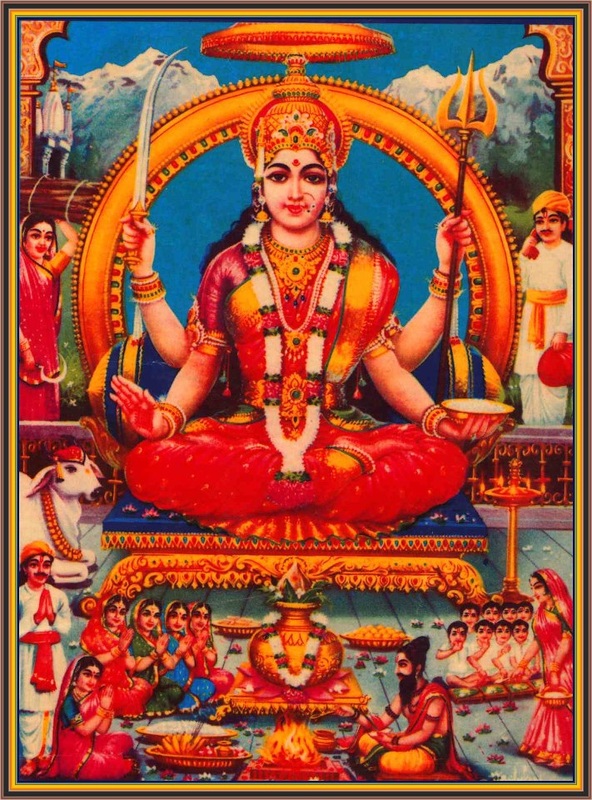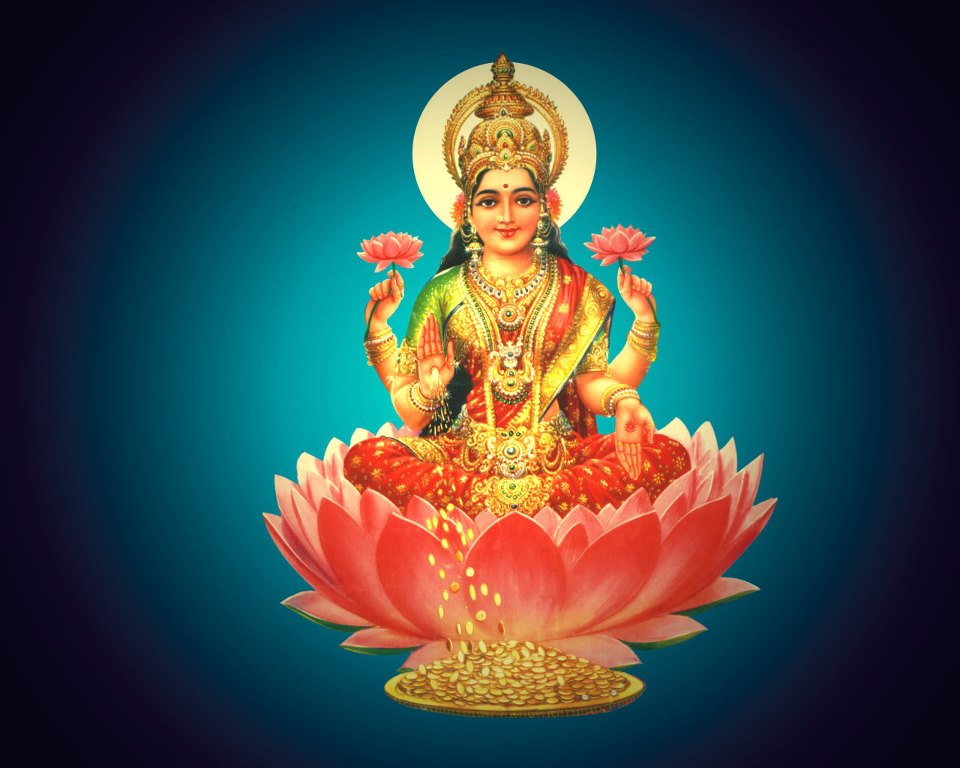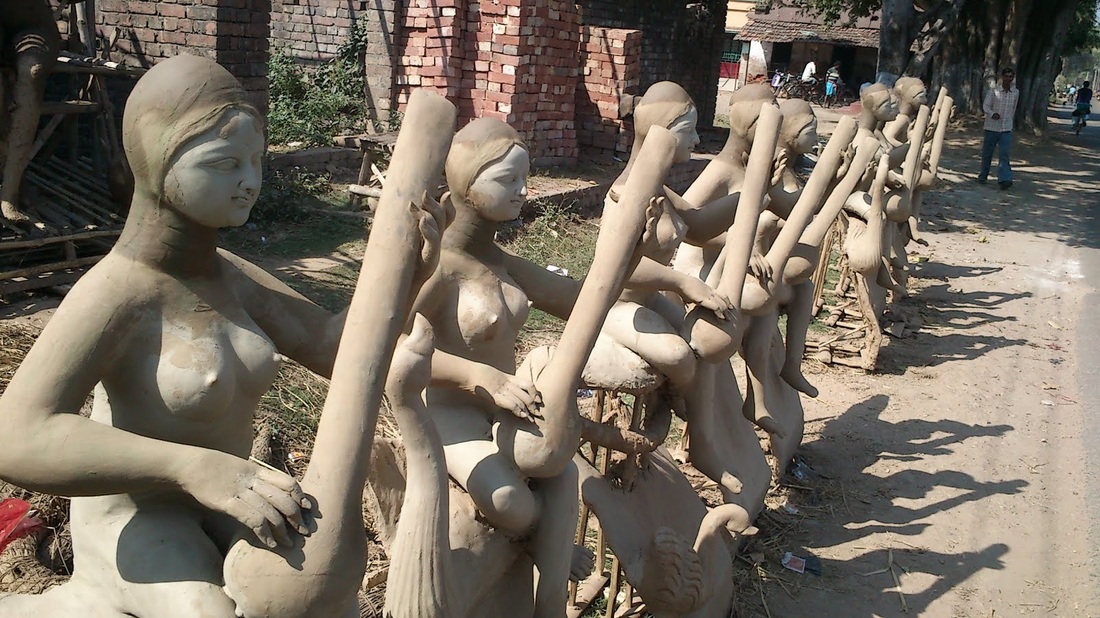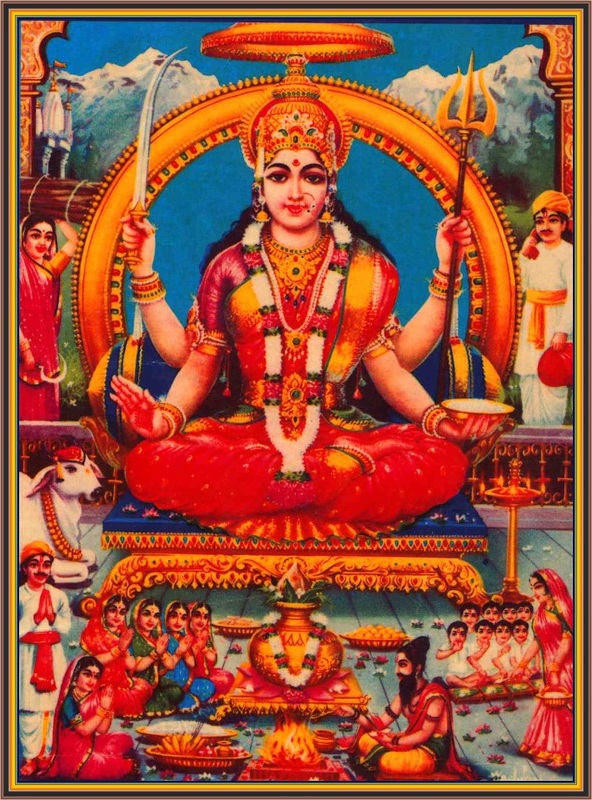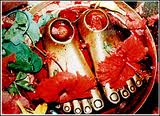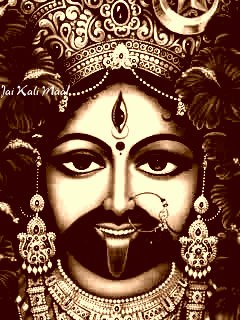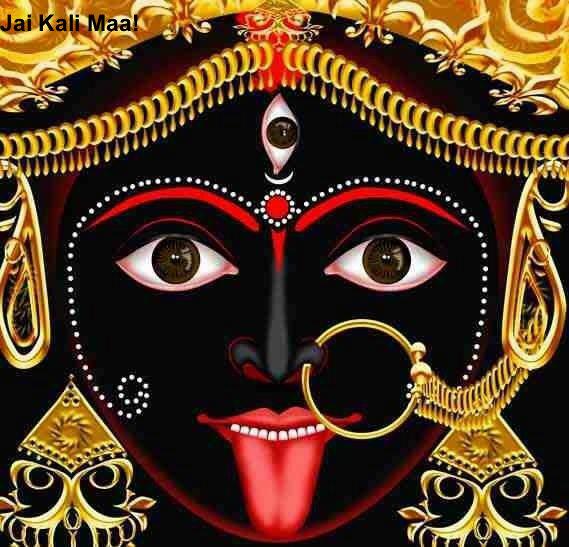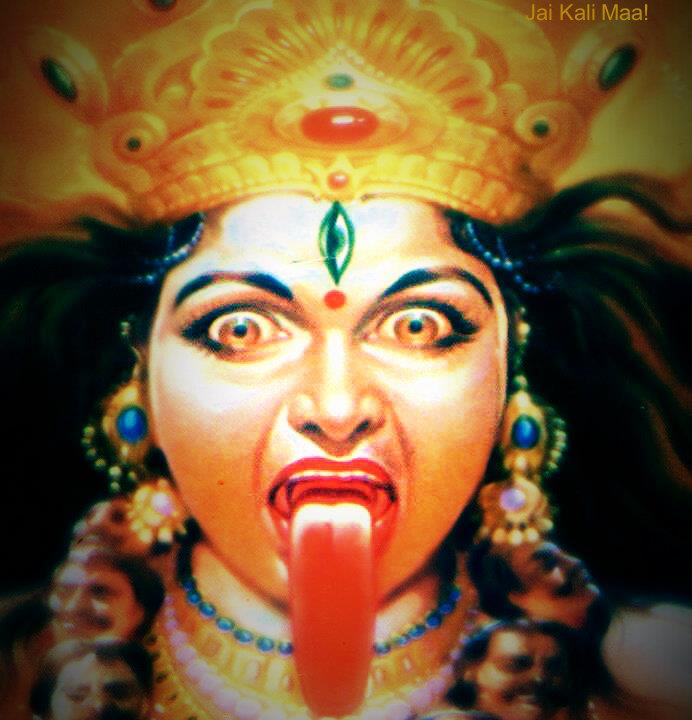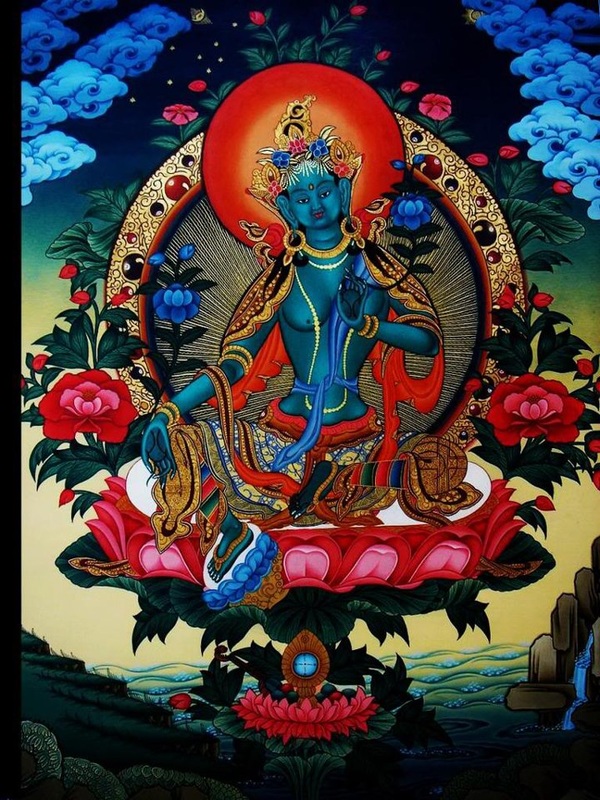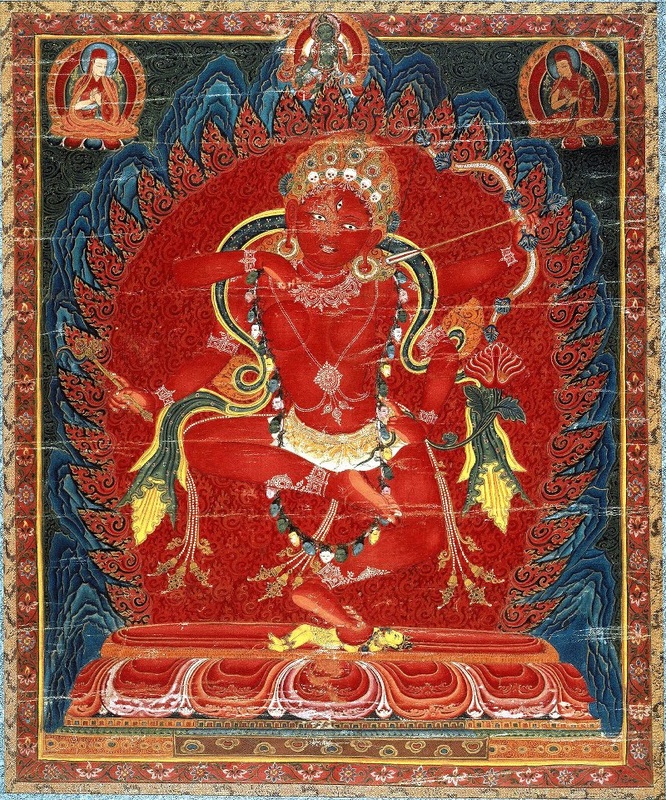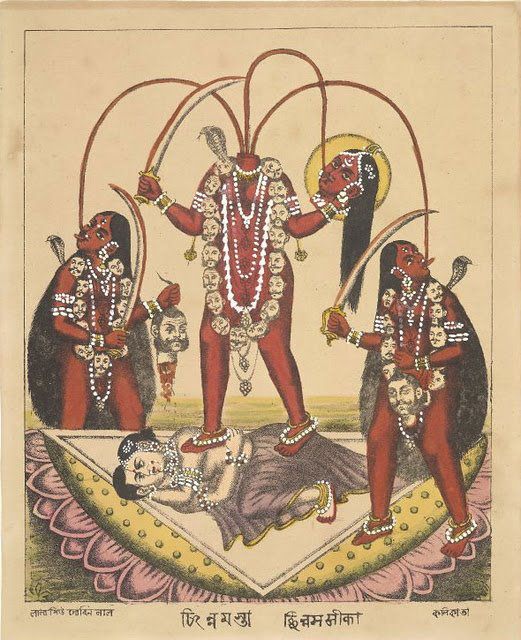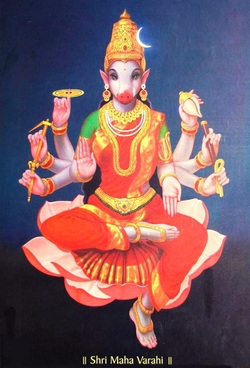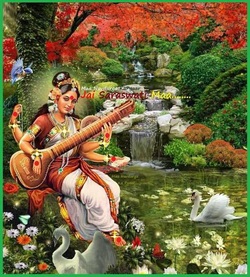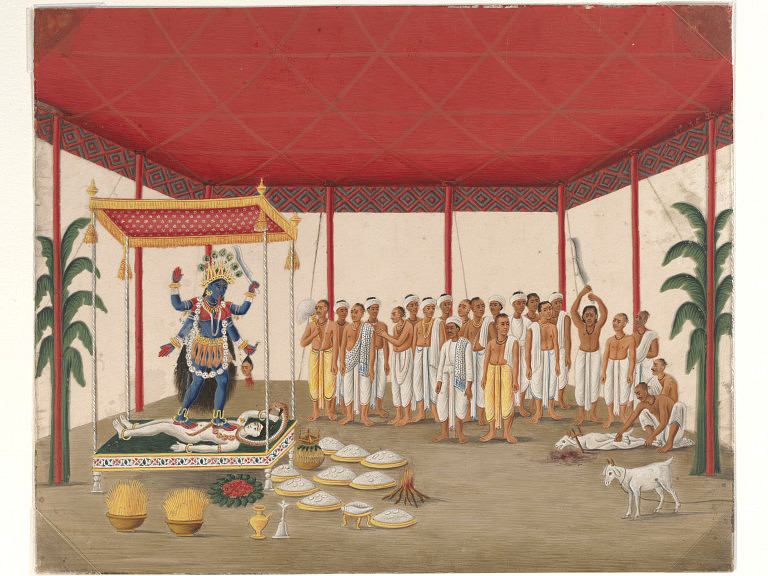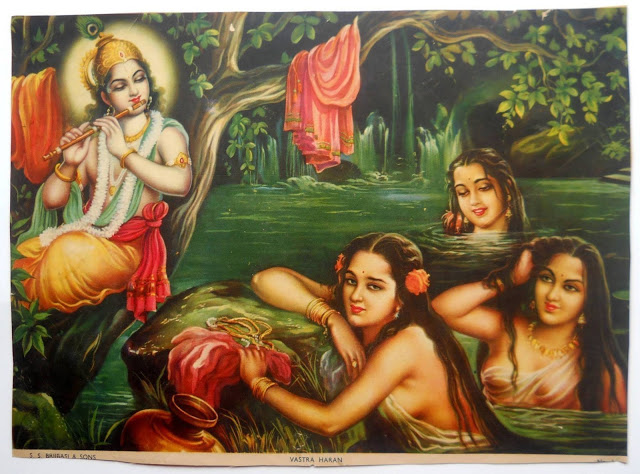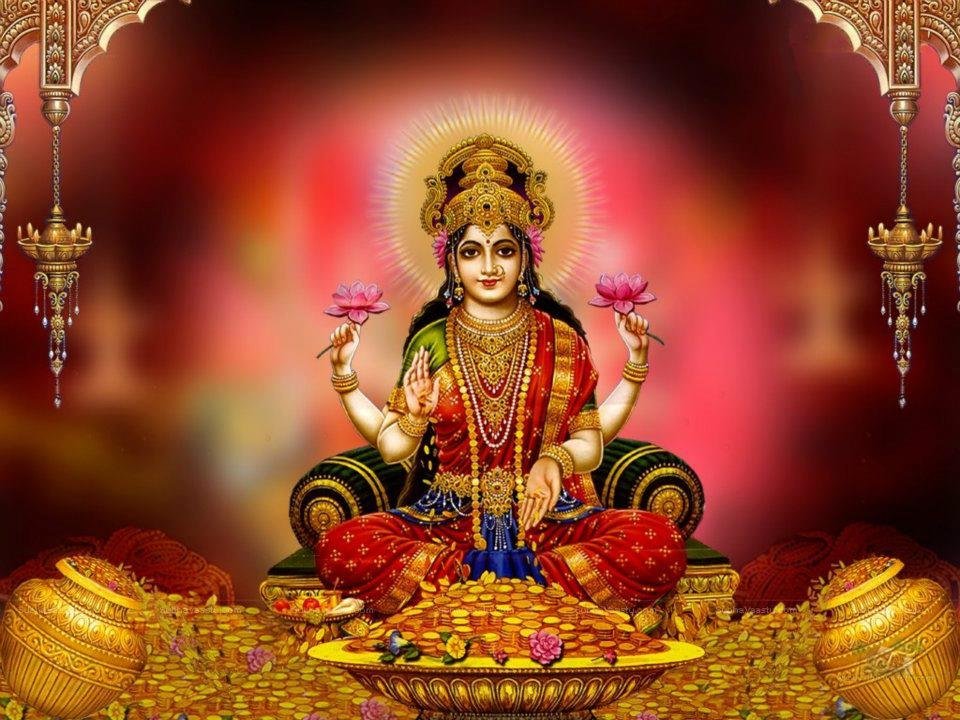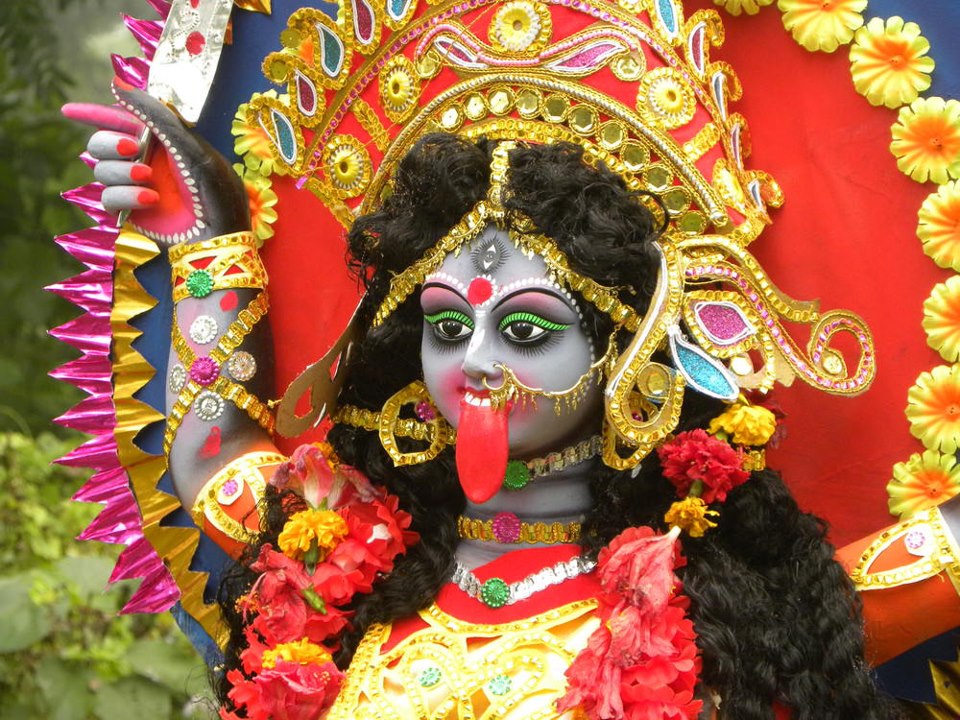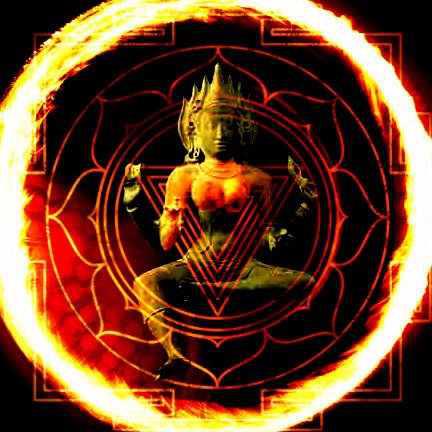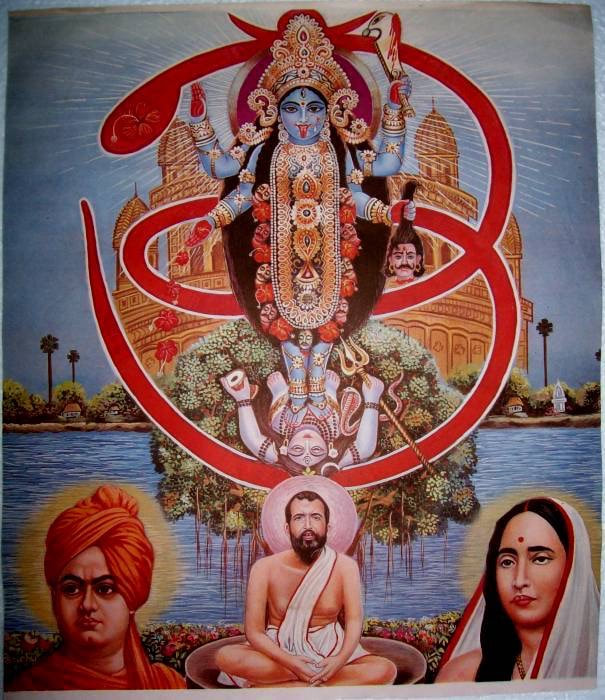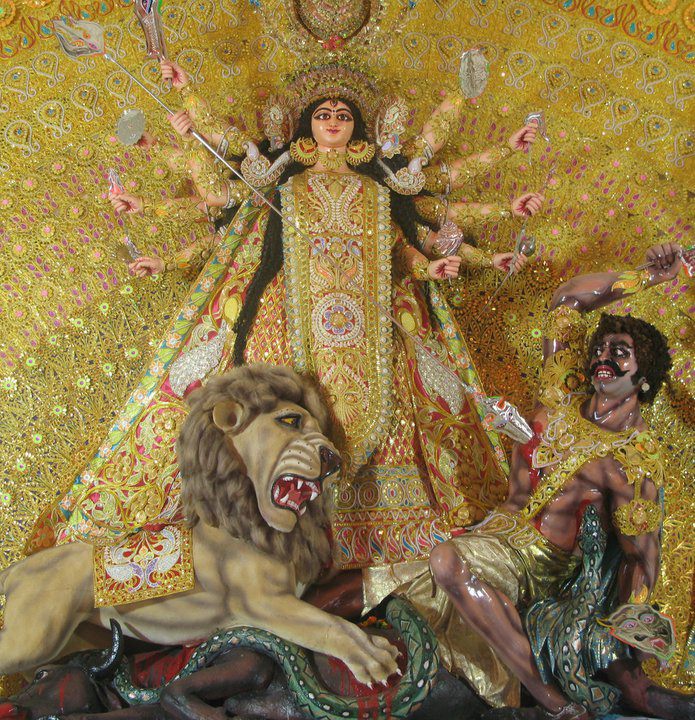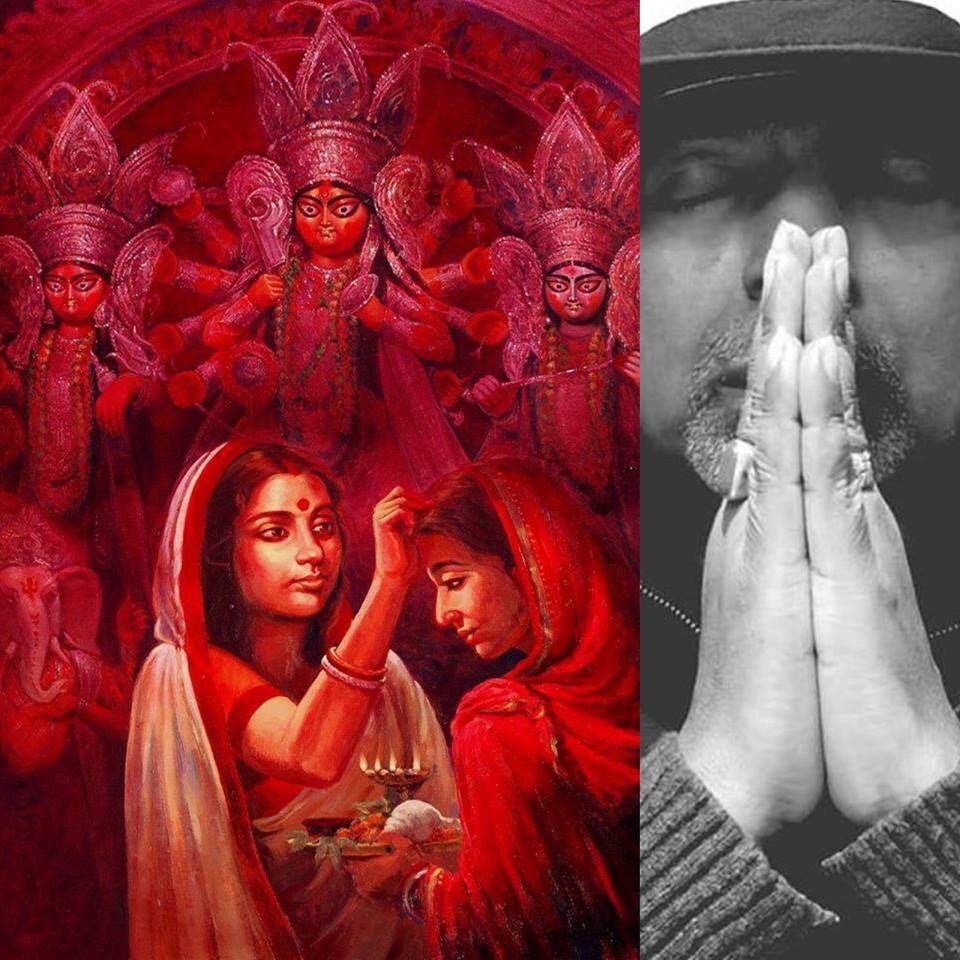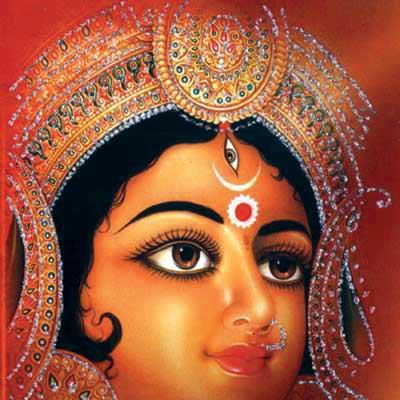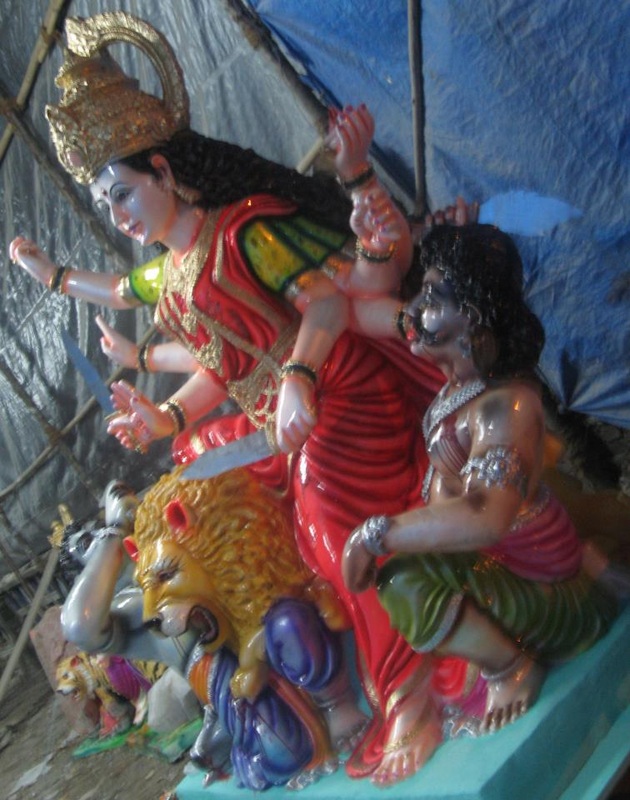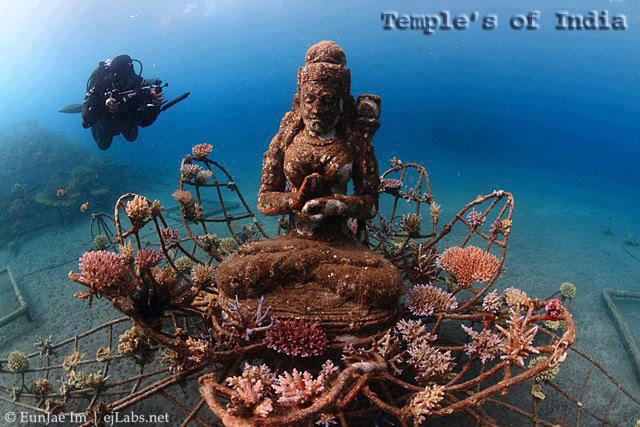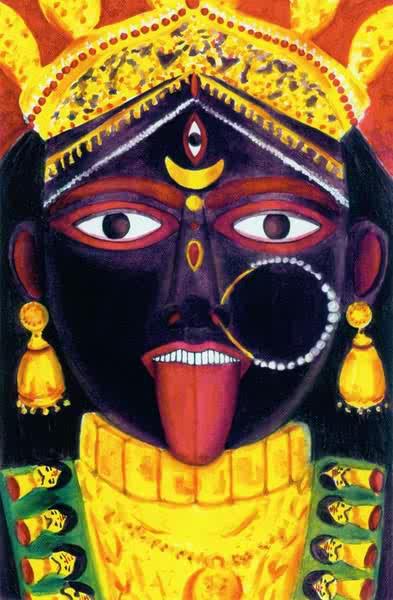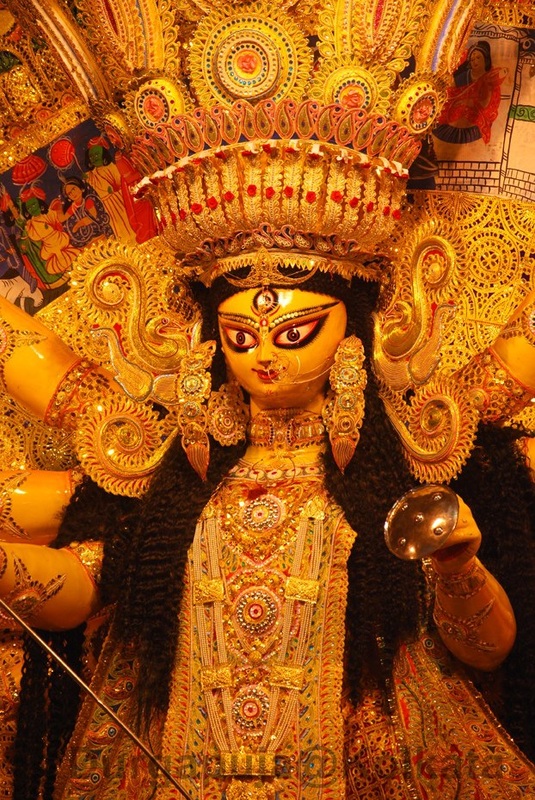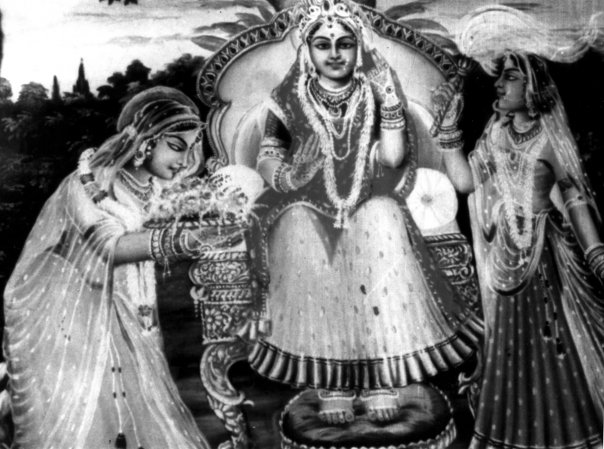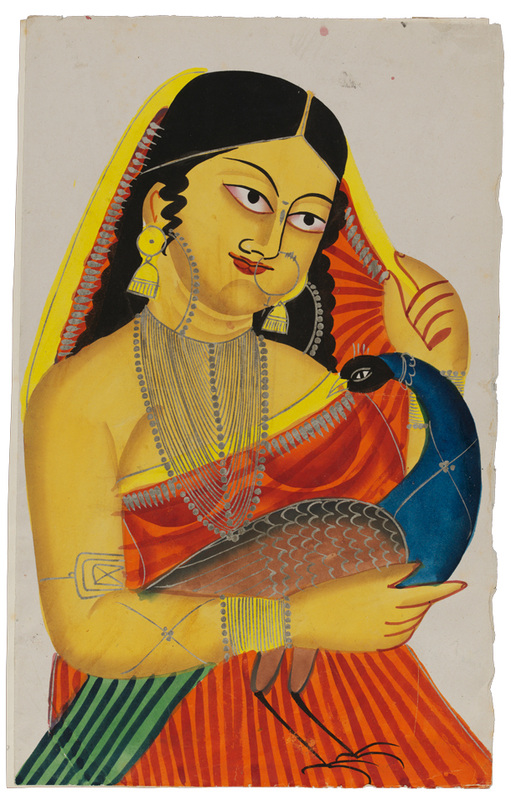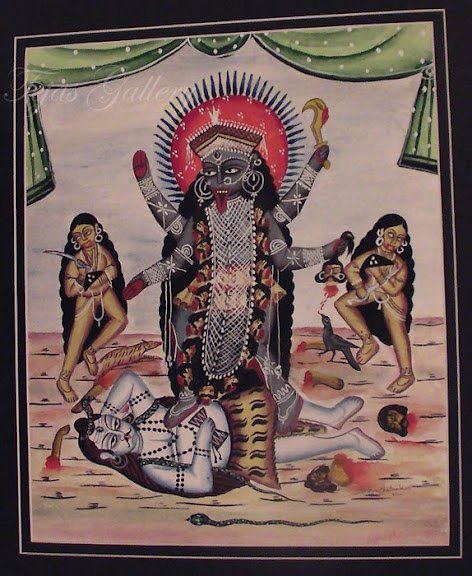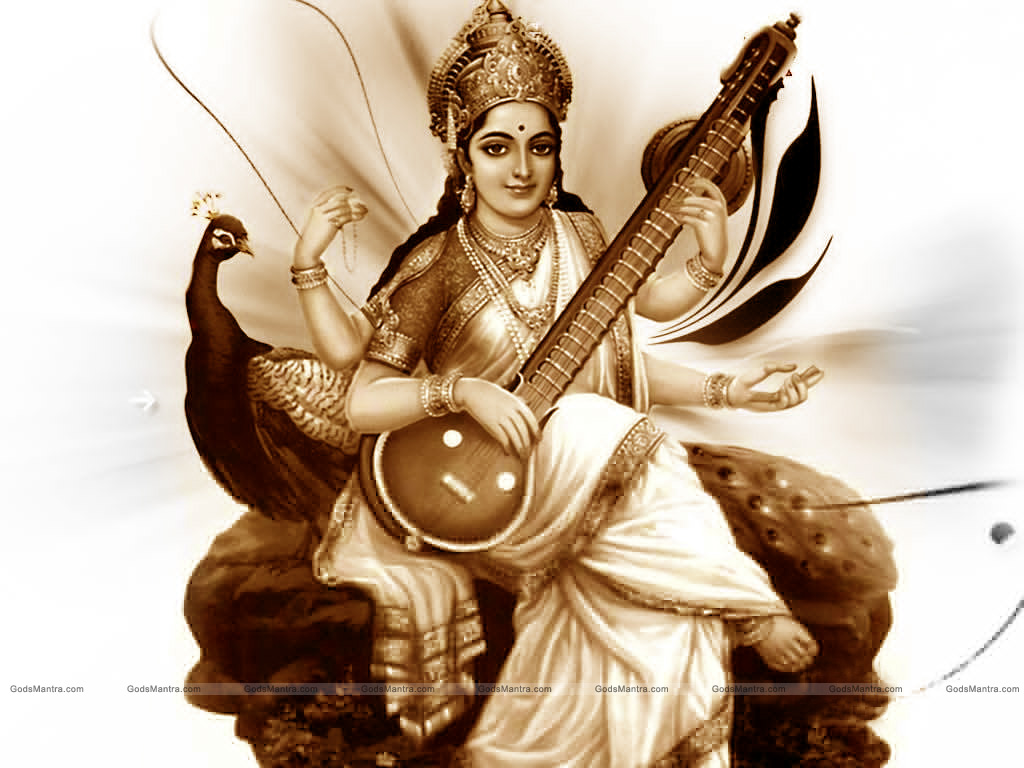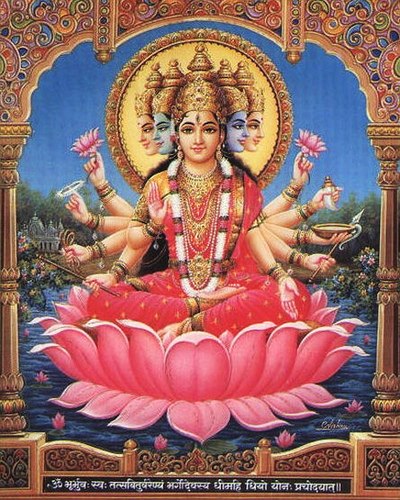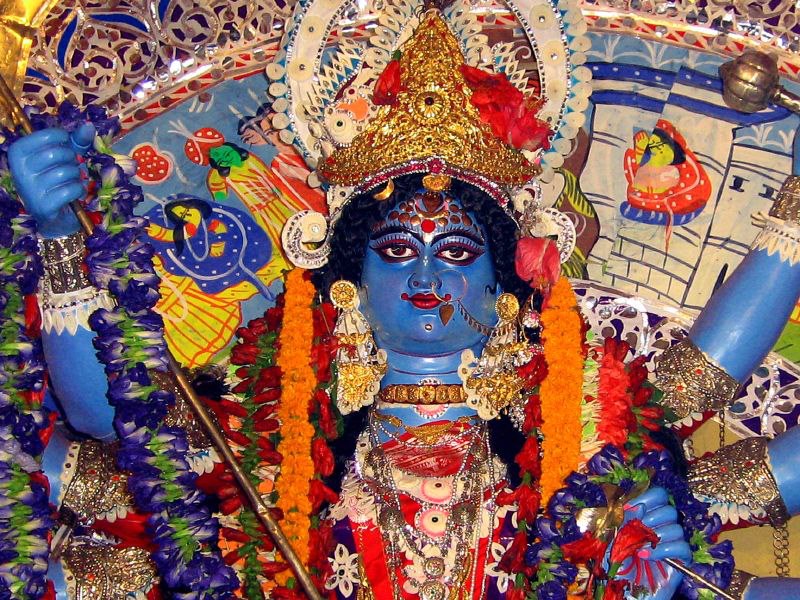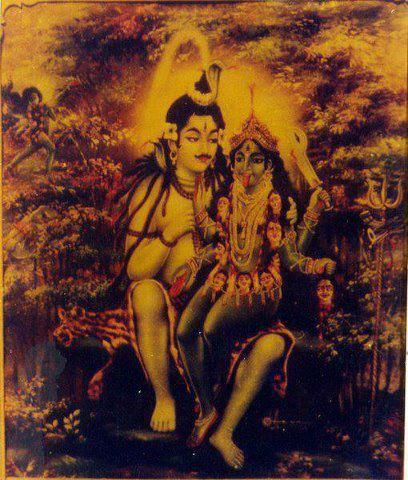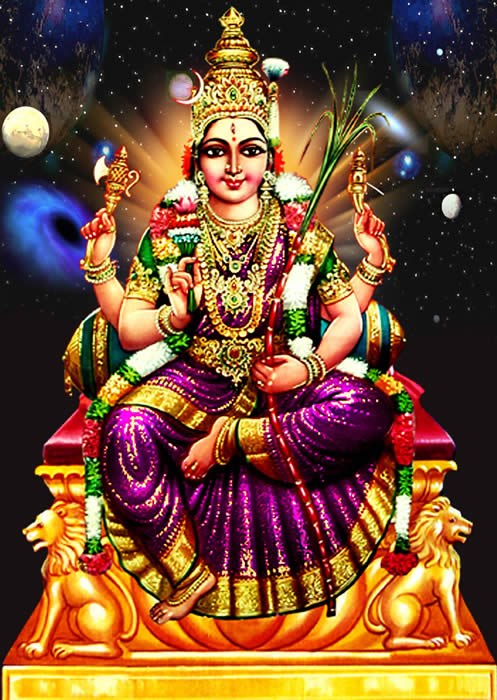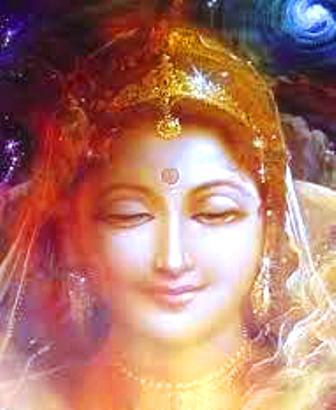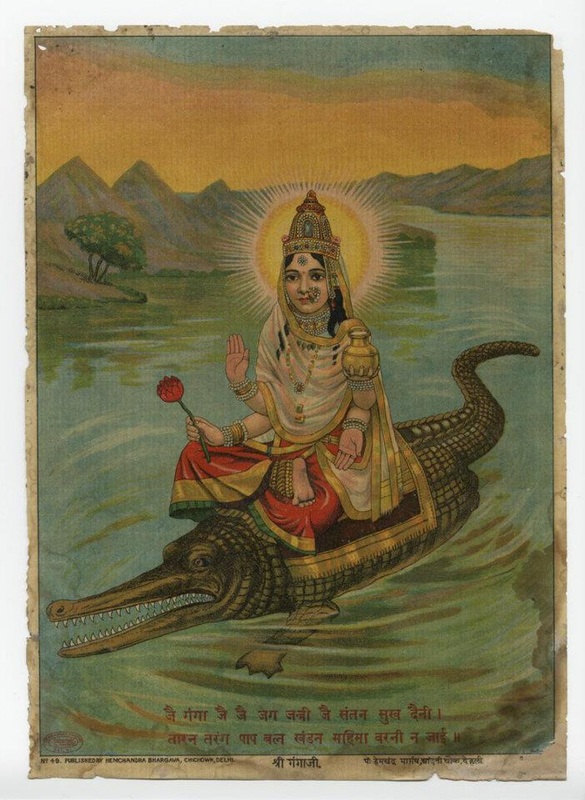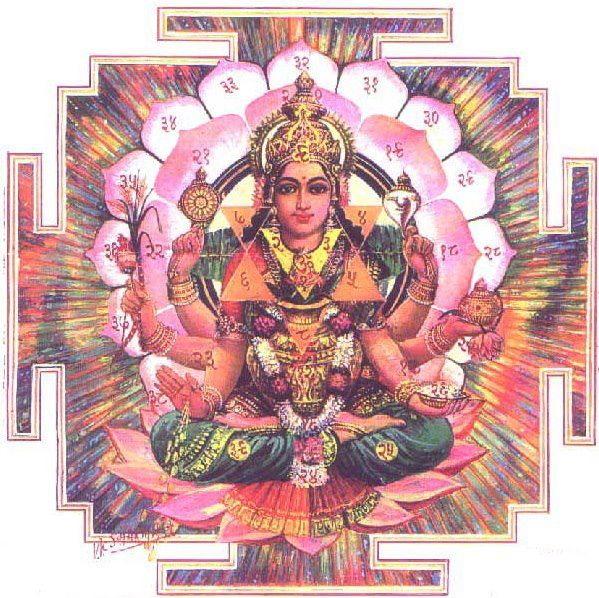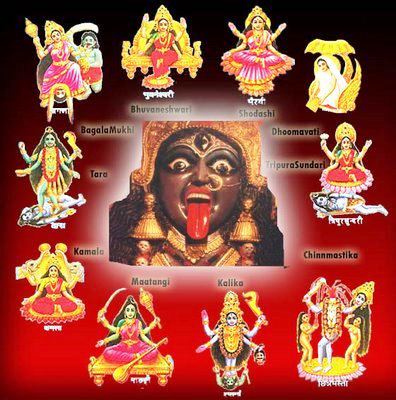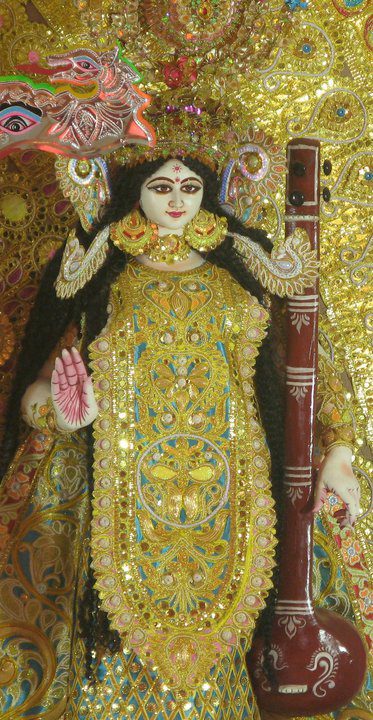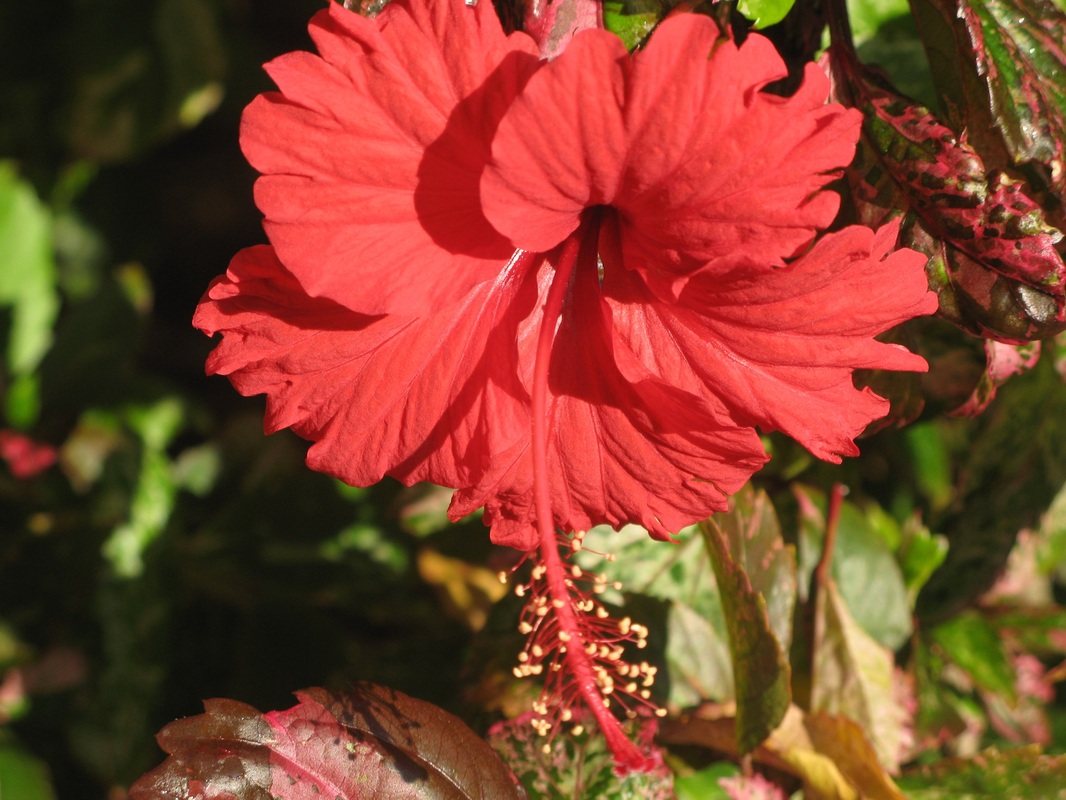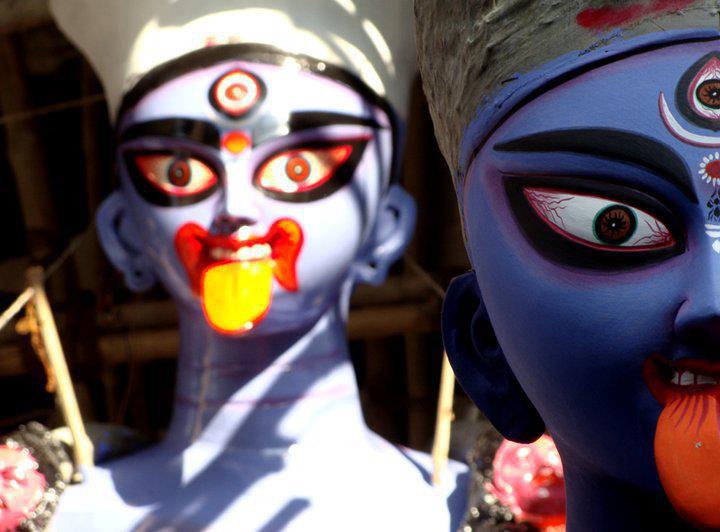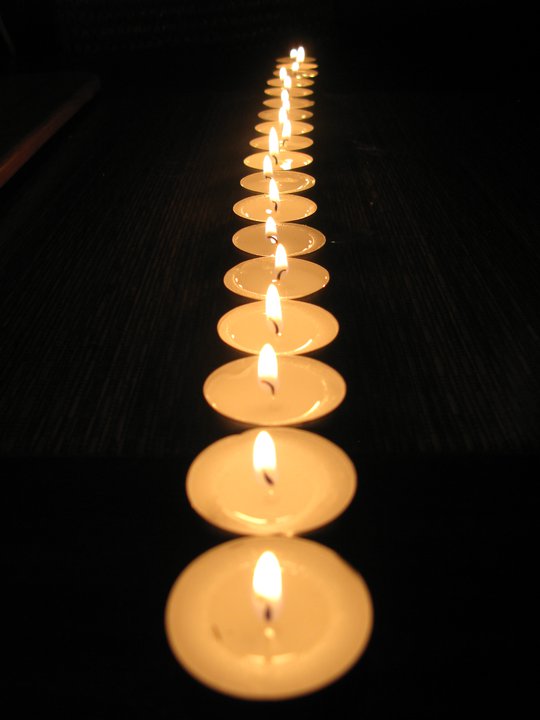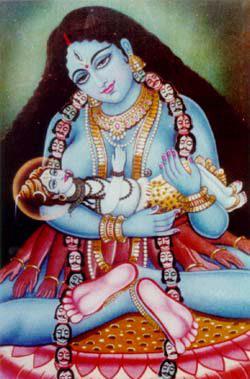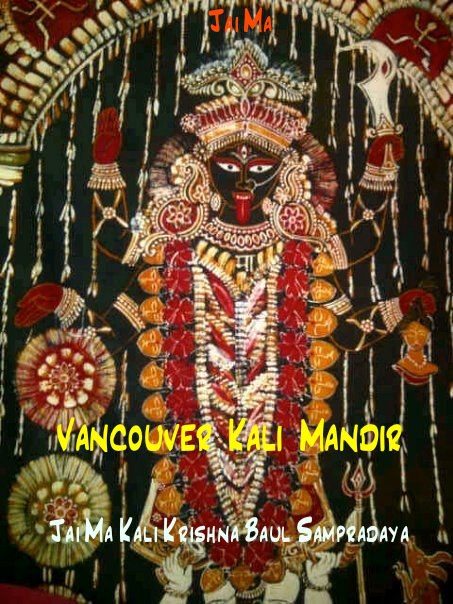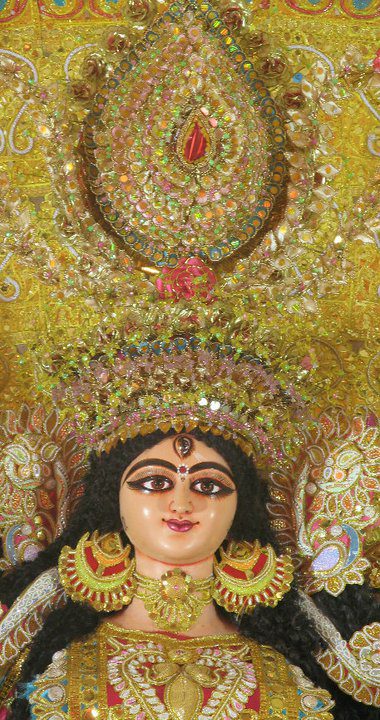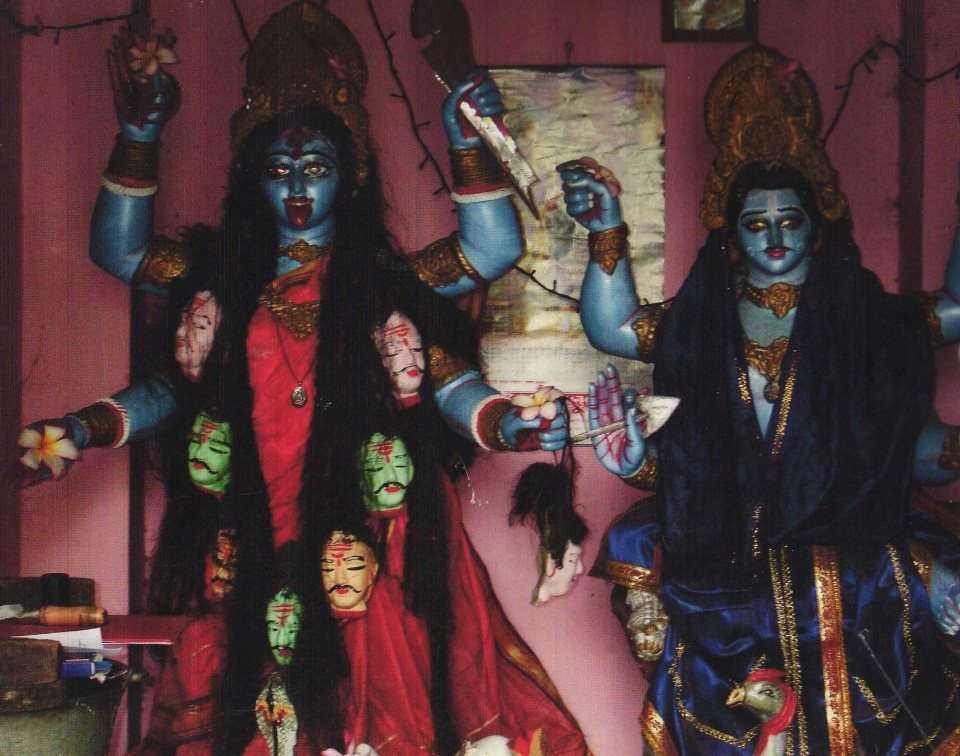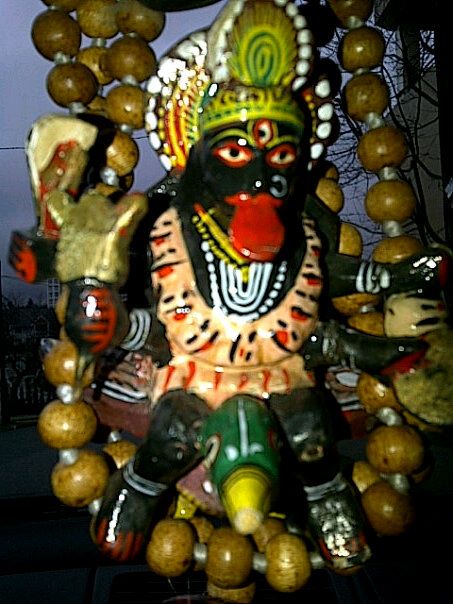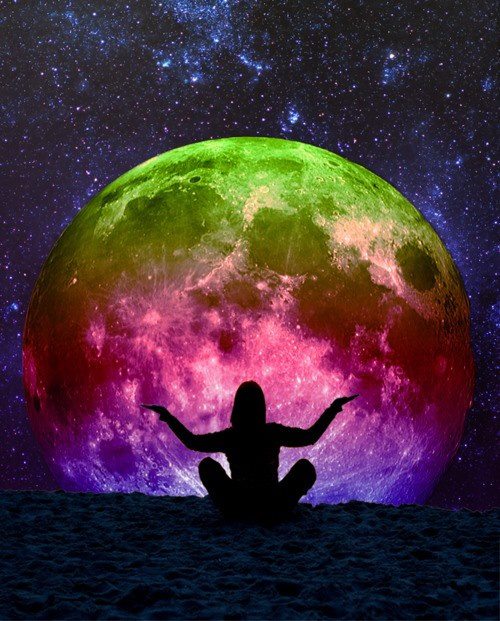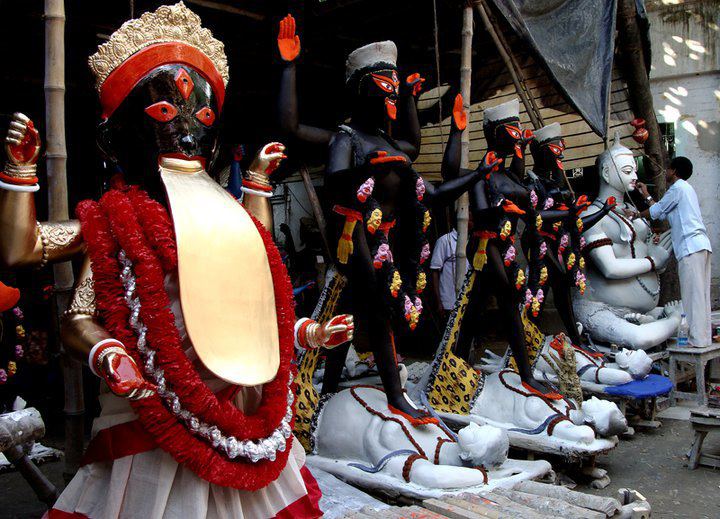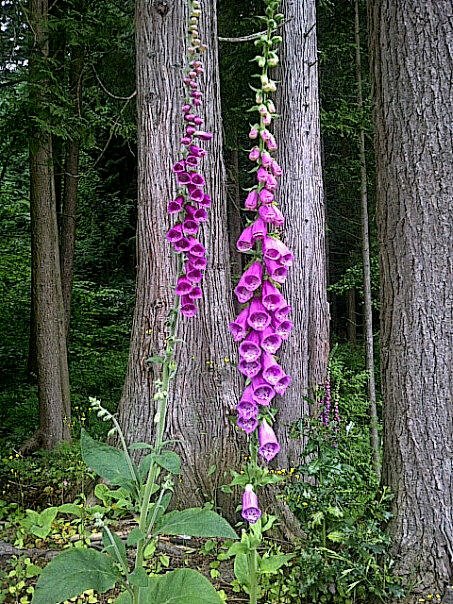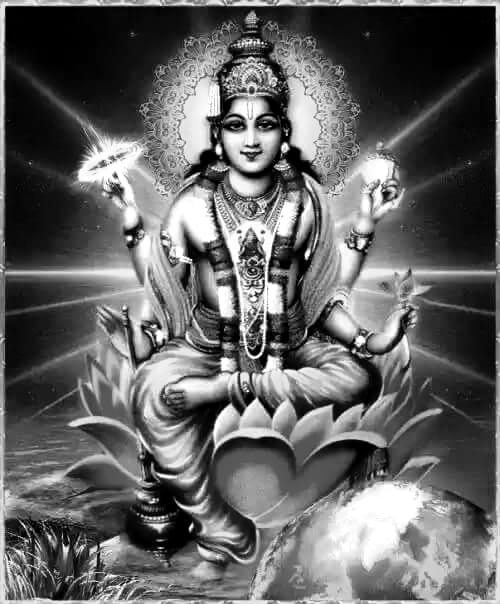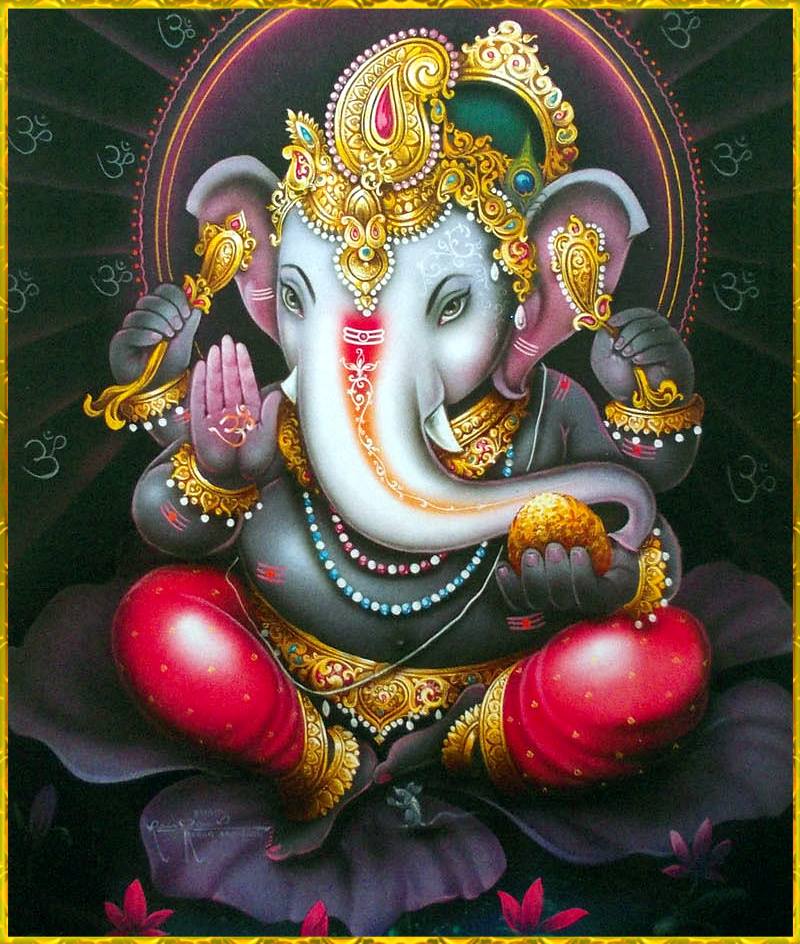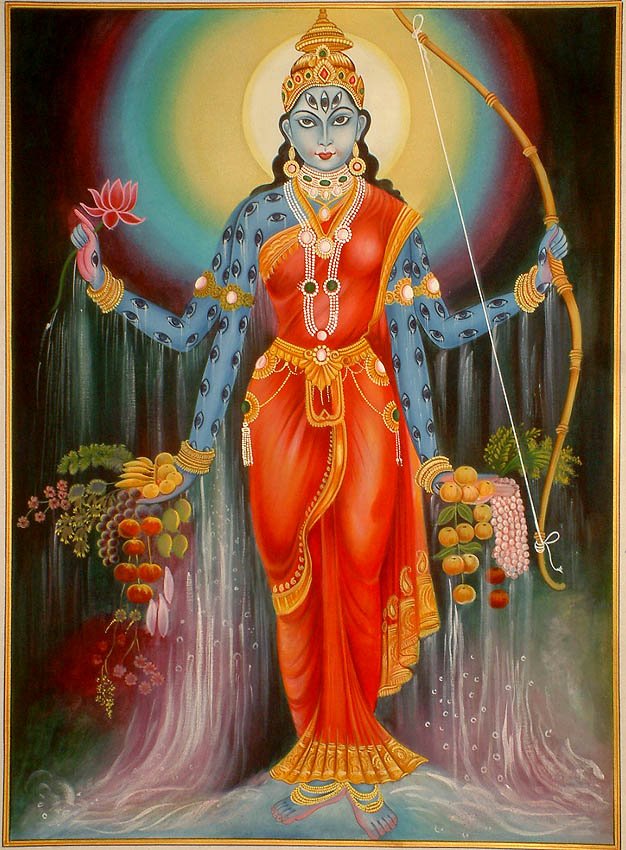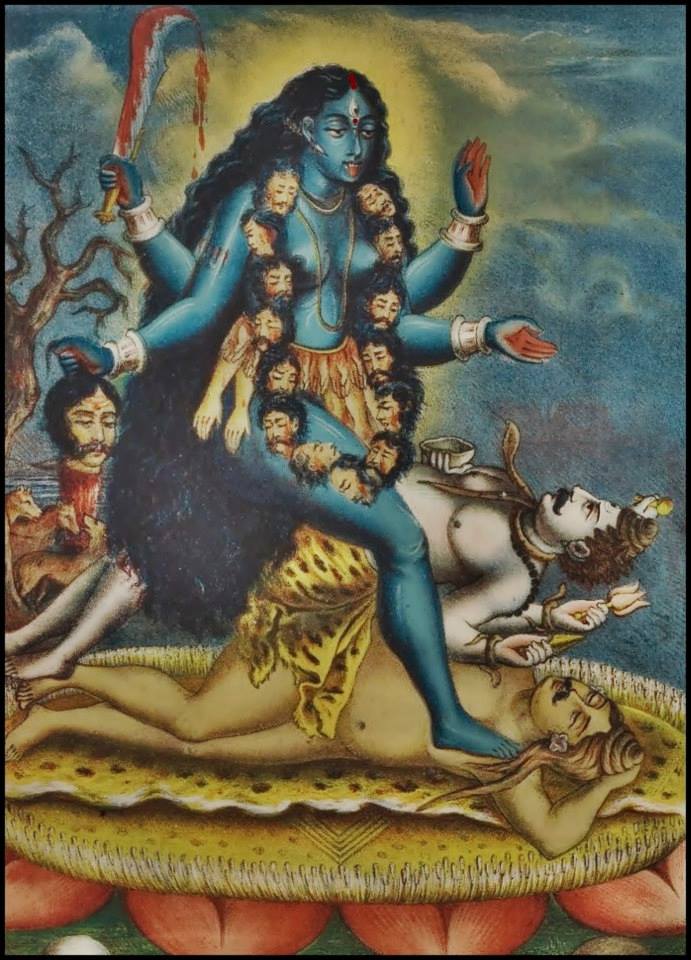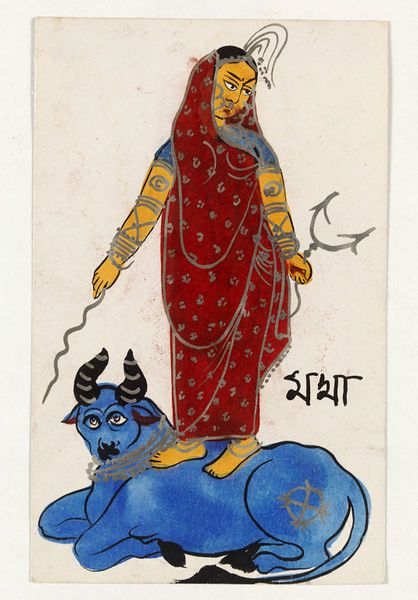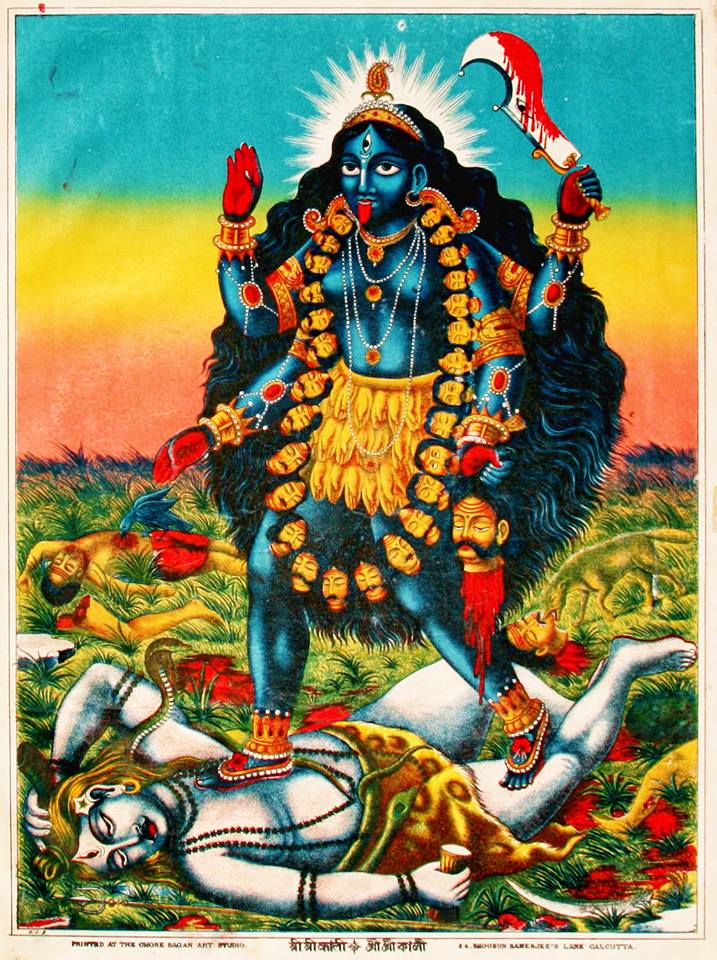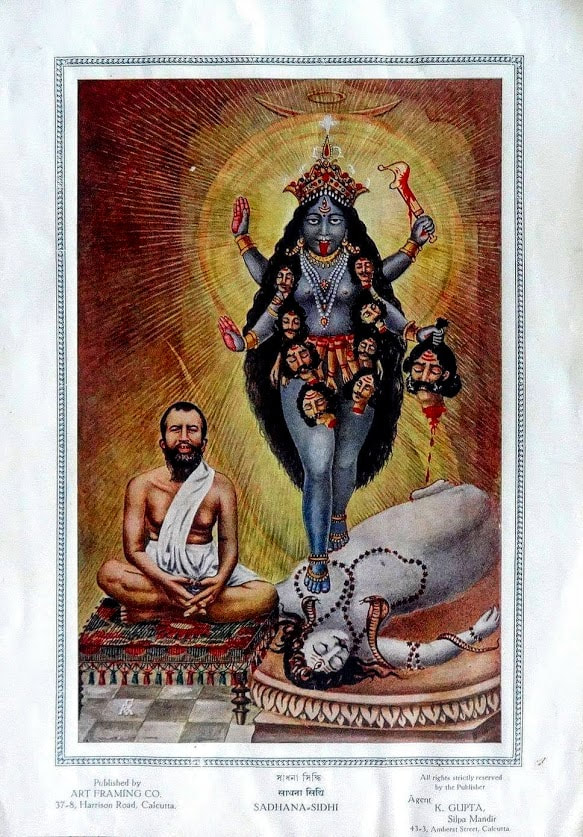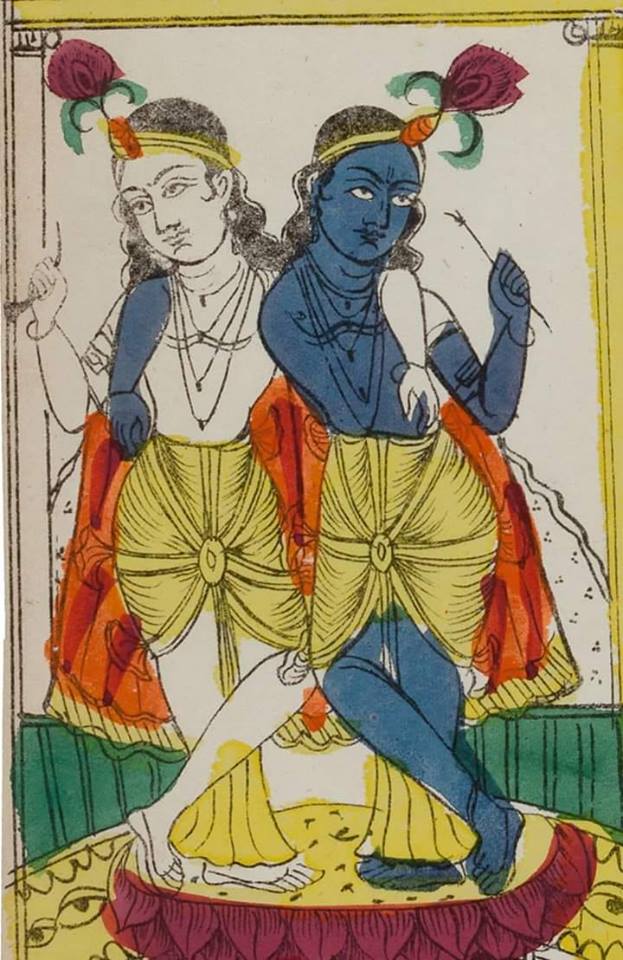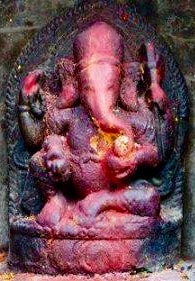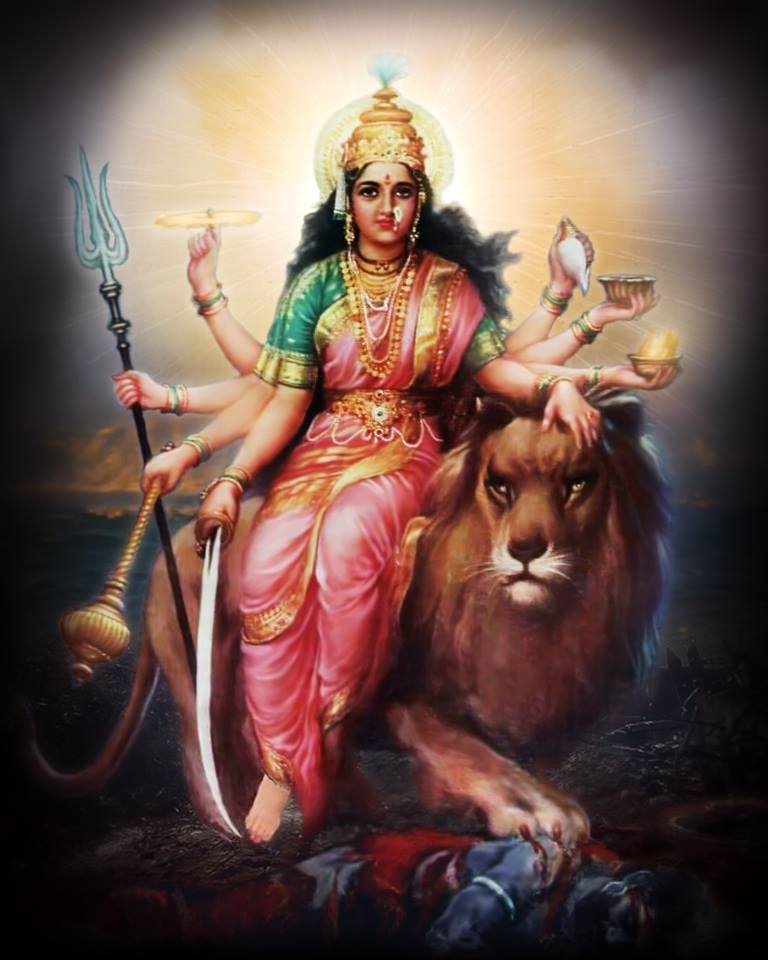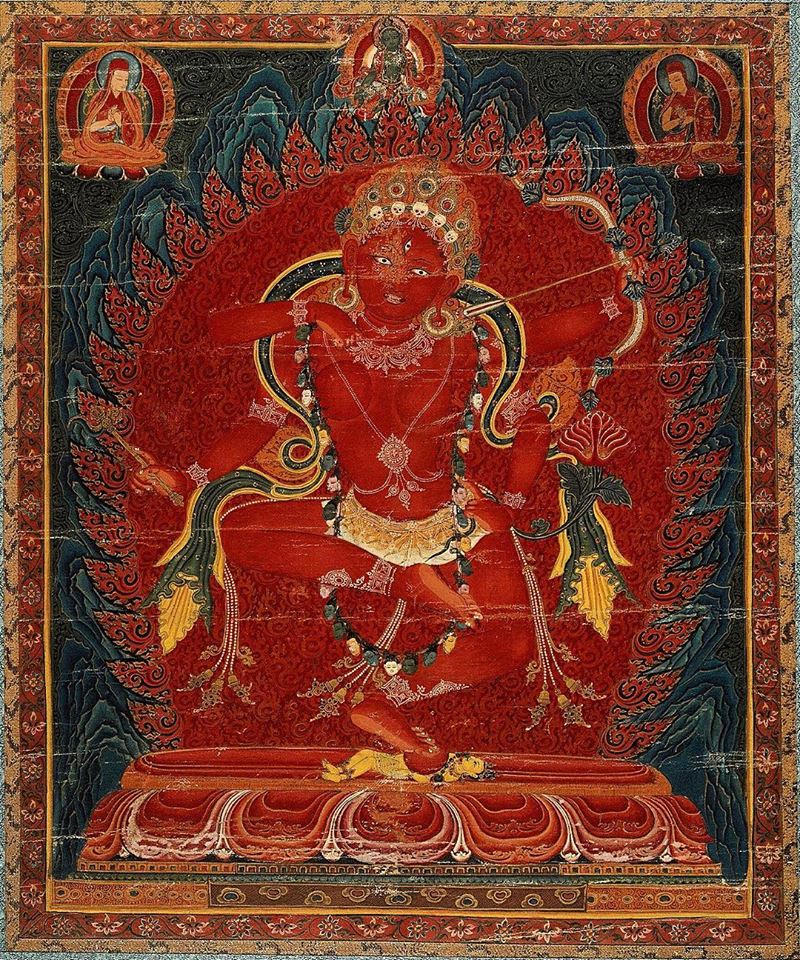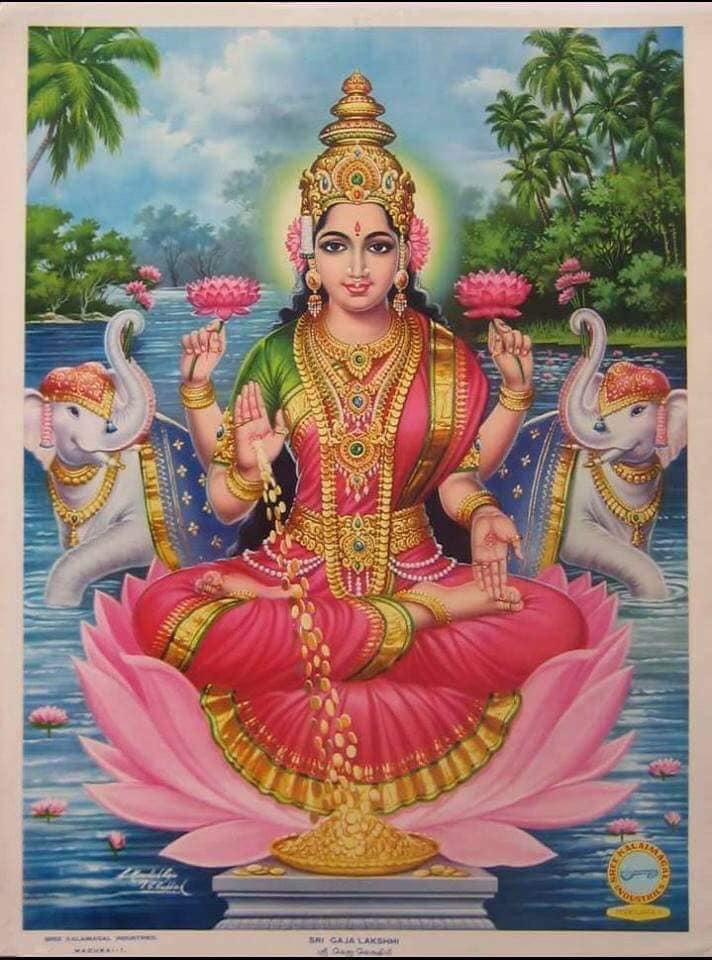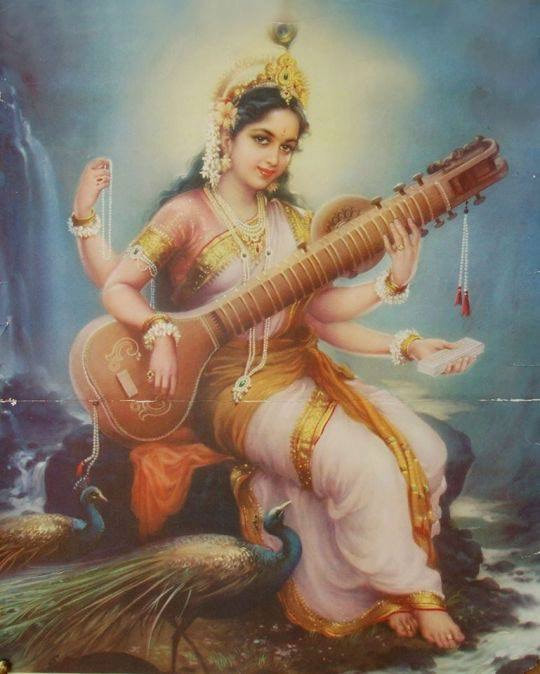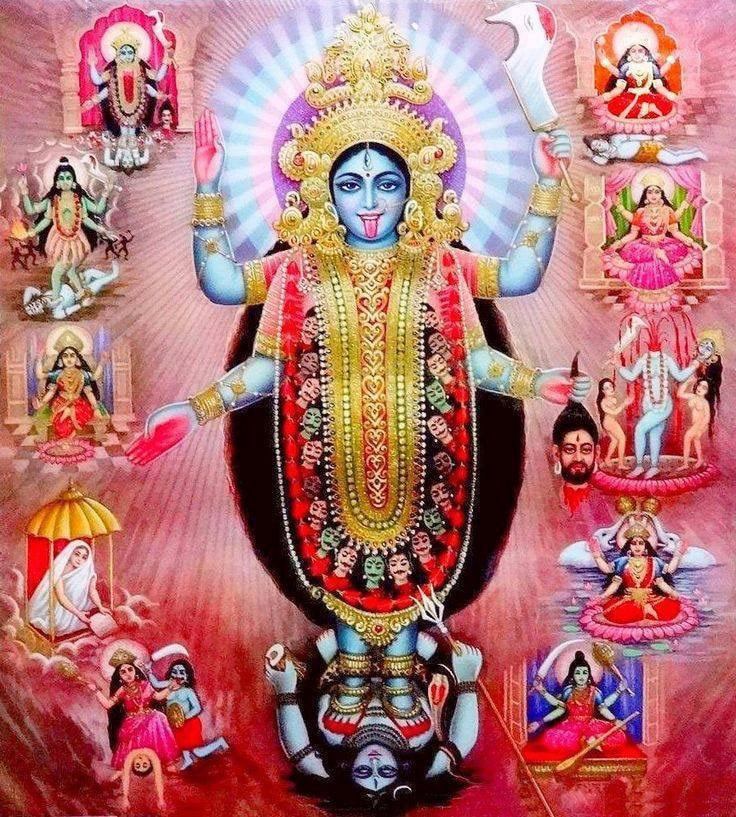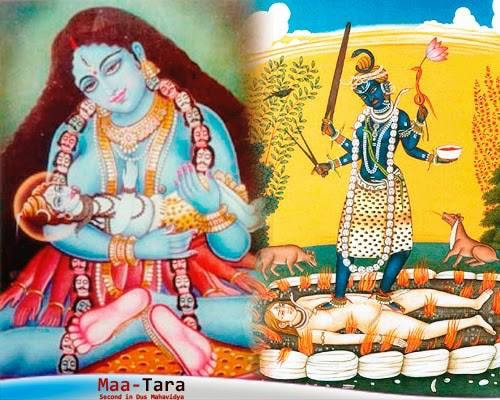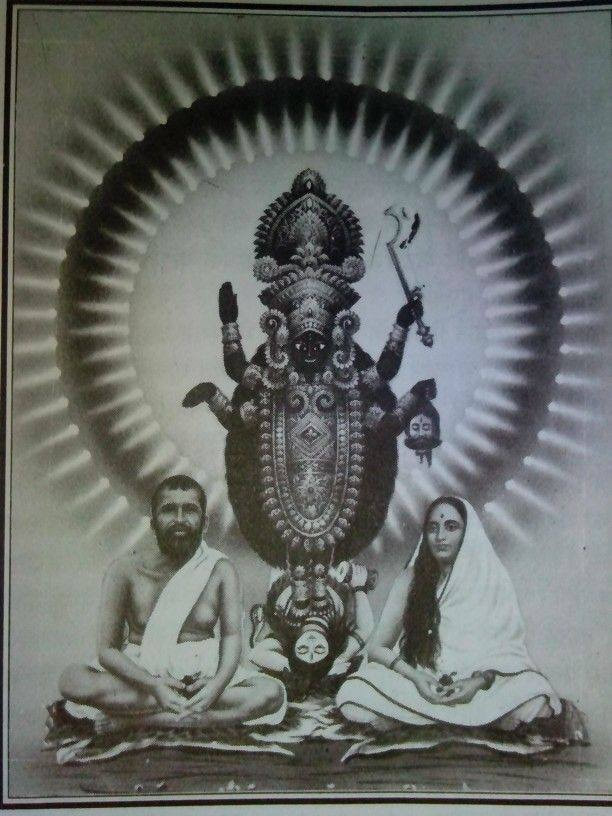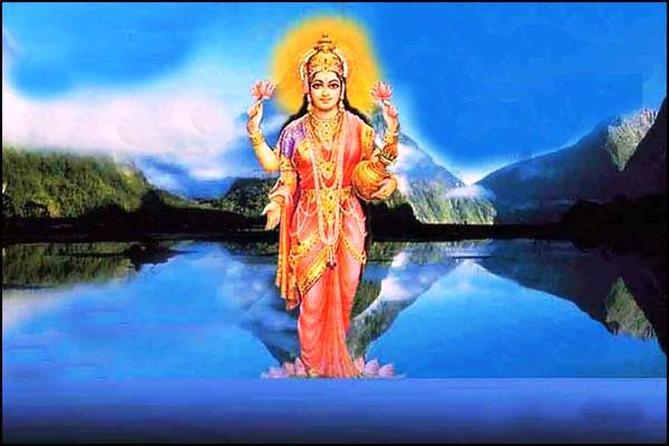
Prithvi is also another form of Lakshmi, Vishnu’s consort. Her other names are Dhra, Dhrati, Dhrithri. These namplies that ‘she holds’ everything. Sometimes Prithvi is described to be the second wife of Lord Vishnu. Indeed Bhudevi or Bhuma Devi is the second wife; a stretched reference to Prithvi.
BIRTH: King Vena, according to Vishnu Purana, is wicked and known for his general neglect of religious duties. He was slaughtered by the Rishis for his impiety. Anarchy prevailed without a king and it was thought a bad king was still a king. The rishes rub the thigh of Vena and Nisida, a black dwarf appears, representing the relief of Kena’s sins. The right arm of the ‘pure’ corpse was rubbed and came a shining Prince by the name of Prithu. He takes over Kena’s kingdom.
There was a faminie and Prithu wanted to slay Earth and make her yield fruits. The earth assumed the form of a cow and pursued Prithu up to the heavens of Brahma. There she questions the sins of slaying a women. Prithu replies that it is a virtous act for the welfare of his subjects. The Earth declares all vegetable products, old and destroyed would be restored at the king’s command as developed from her milk. Prithu makes Swayambhuva Manu the calf, milk the Earth, and received the milk into his own hand for the benefit of mankind. Vegetation proceeded to subsist and life is given back to Earth. By this deed impliedly Prithu is Earth’s father and she deriving the name Prithivi.
Prithivi, the earth and Dyaus, the sky or heaven were symbolized as cow and bull. These were the early deities worshipped as fertility gods and are thought to have engendered all the other gods and men. In the later pantheons, the importance diminished. Ushas, the dawn, was the daughter of Agni. They claimed fame through Indra. However Prithvi was the heroic female and Dyaus was the vigorous god. Indra was himself born from Prithivi’s side. Her attempts to conceal the birth were ill-fated as Indra began to shine as a golden child and display energy and impulsiveness.
There is another version that states that Prithu married the earth as soon as he was born but that she refused to give up the treasures she was concealing. Prithu therefore plans to kill the earth to end the famine. He chased and thrashed her, she takes the form of a cow and sought Brahma’s asylum. Farmer digging, ploughing and hurting the fields is symbolic of Prithu, while the cow, Prithi, despite the ill-treatment, gives labour and nourishment and wanting nothing in return. The other symbolism here is the milking of the cow. Prithu is also an incarnation of Vishnu, who milks Prithvi to get food from her.
DEPICTION: Goddess Prithivi is depicted with two arms holding a blue lotus known as Komud in her right hand. Her left shows the fearless Abhaya Mudra. She is also depicted in votive statutory, seated on a square platform which rests on the back of four elephants representing the four corners of the world. The four arms each carry a pomegranate, a water vessel, a bowl containing healing herbs and one containing vegetables.
NAMES AND ATTRIBUTES: In the Vedic pantheon the whole universe is divided into three regions namely Prithvi – earth; Dyayus-heavens and Antariksha-space. Privithvi Devi is associated with Nandini, Vishnu avatar as Prithu. It is said she milked her in the cow’s form to get food from her. She takes many names such as Bhumi, Bhudevi, Bhuma Devi, Dhra, Dharti and Dhrithri. These names imply that she contains everything. Claimed to be a wife of Lord Vishnu, Prithvi is said to be a form of Laxmi. As a provider Prithvi Devi is Vanaspatinam Grbhir Osadhinam – Womb of the Forest, Trees and Herbs; Vishvadhya – All Nourishing; Vishgabha – World’s womb; Vishvamshu – Source of Everything; Dhara – Upholder; Drdha – Steady One and Ksama – Patient One. As a sustainer, Privithvi is Sthavara – Stable One; Vishdava – All-Preserving; Vishvadharini – All Supporting; Vishvamhara – All-Bearing and Ratnagarbha – Repository of Gems. As Enricher, She is Ratnavati – Abounding in Jewels and Vasundhara – Bearer of Treasure.
THEMES: Maternal and reproductive function; supportive nature; upholds and supports all things; encompasses all things; motionless; move freely; patient and strong; tolerating the wicked and the good, the demons and the gods; wealth, riches and power; water and the food; protect people from danger; expiate sin and to bring happiness.
PRITHVI DEVI AND DYAUS PITA: In the Hindu pantheon , Prithvi is the divine consort of Dyaus Pita, the Sky Father. Rig Veda 1.89.4b mentions Dyaus as ‘Father Sky’ and Mata Prithvi as ‘Mother Earth’. According to Rig Veda 4.17.4 Dyaus is the father of Agni, Indra and Usha. Usha represents dawn. As Dyavaprthivi, Dyaus Pitr and Prithvi are one single composite. ‘Dyavaprthivi’ also means ‘heaven and earth’. Having been cursed by Vasishta for injuring Nandini, the sacred cow, he is reborn as Bhismar and dies in Krukshetra war by suffering the karma of being pierced with arrows. Rig Veda states his abode to be Dyuloka which regarded as the Fountain-head of God, the primeval Purusha. Dyuloka also refers to the part of the heavens illuminated by the Sun and the Milky way. Thus it is the ultimate layer of heaven illuminated by cosmic lights.
Rig Veda further states that Dyaus Pitr impregnated Prithvi by way of rains. He is generally depicted as a red-bull during day time and Prithvi Mata as a cow. Rig Veda 4.18.12 states that he was killed by Indra, his eldest son. It is believed Dyaus had transformed himself as Shiva, the supreme God of the Shaivites.
Generally Dyaus and Prithivi are mentioned in the Vedas as parents of other Gods. They hold their position as wise and energetic promoting righteousness. They give boons to their worshippers. In their several roles, they are beneficent and kind. Indra gradually supersedes Dyaus and replaces him structurally in the Hindu pantheon. Dyaus in fact has sunk into the oblivion and it is Indra that is worshipped now. It is Indra that is said to have formed Heaven and Earth.
SITA: Sita is described to be the daughter of Goddess Bhumi. She was found in a furrow in a ploughed field by Janaka of Mithila. Later towards the end of her life, she returns to her mother, the Earth’s womb.
PRITHVI SUKTA: This is a hymn consisting of 63 verses stated in Atharvaveda 12.1. It is dedicated to Mother Earth.
In general, Hindu Gods and Goddesses are seen as celestials and it is the earth that is the stage for many of God’s activities. In that sense the Earth has made them terrestrial and the link between man and God much stronger. The Earth itself is a Goddess – Bhumadevi. Om
Yogi Ananda Saraswati
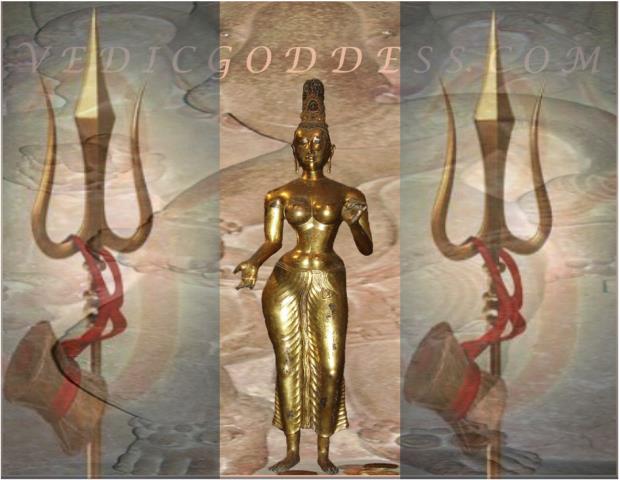
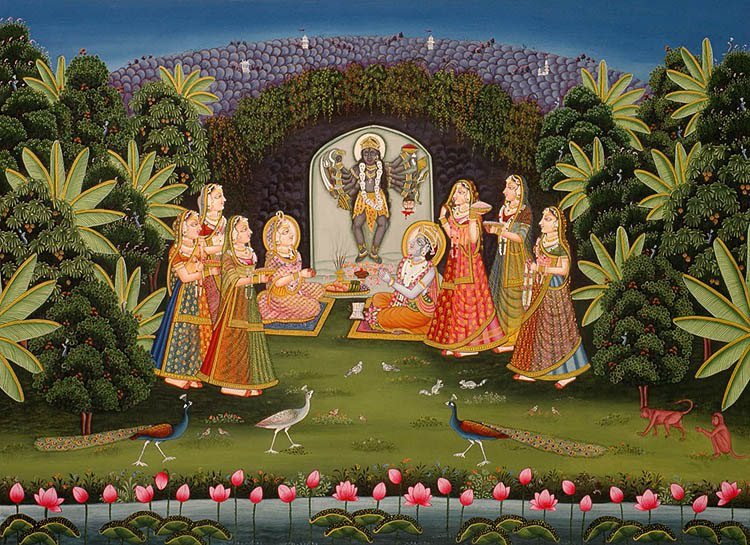
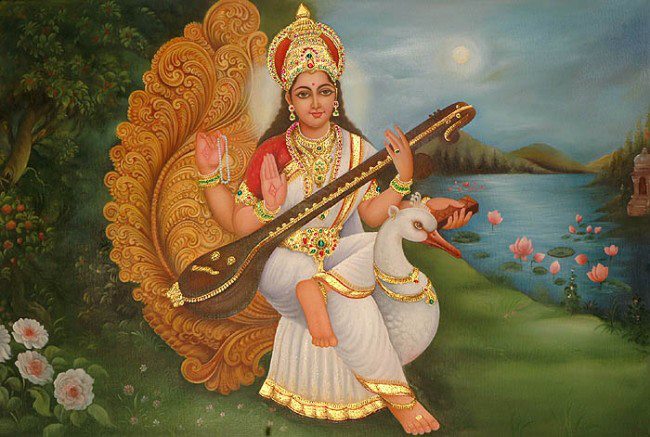
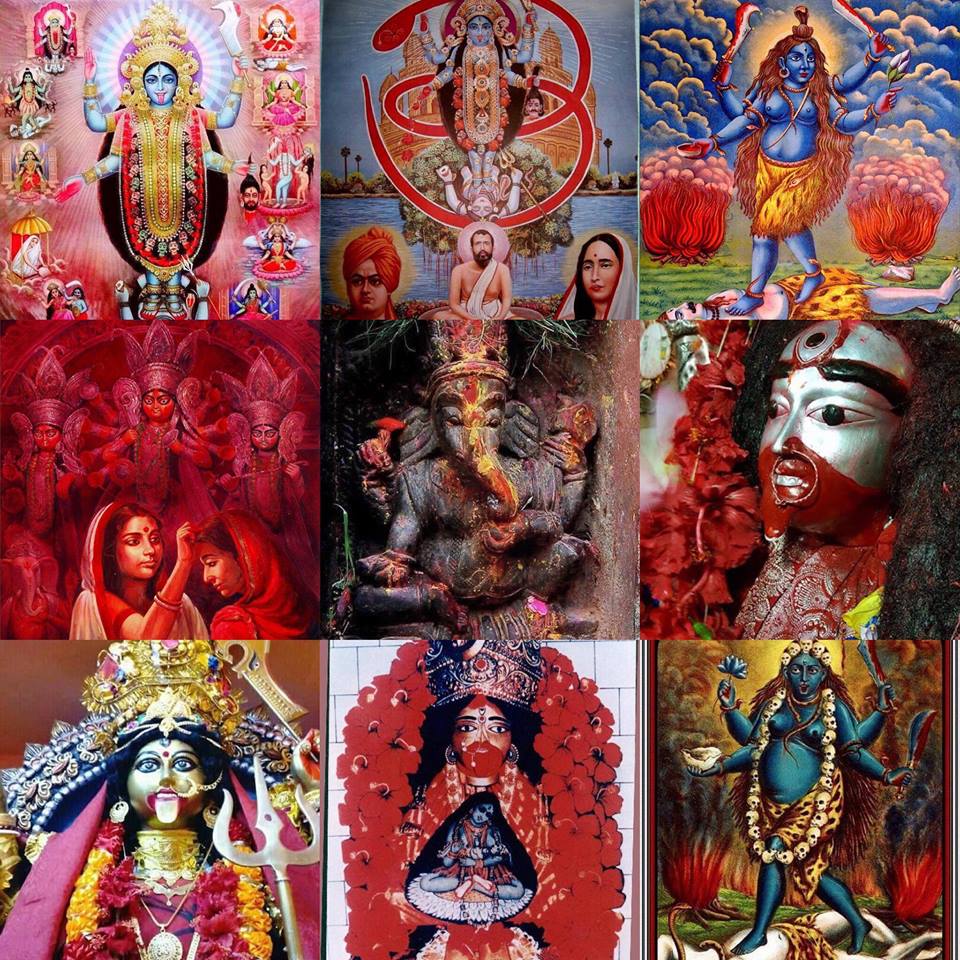
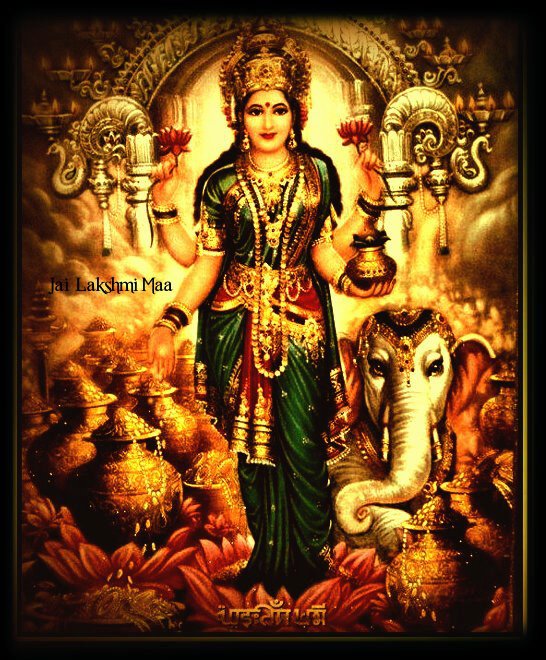
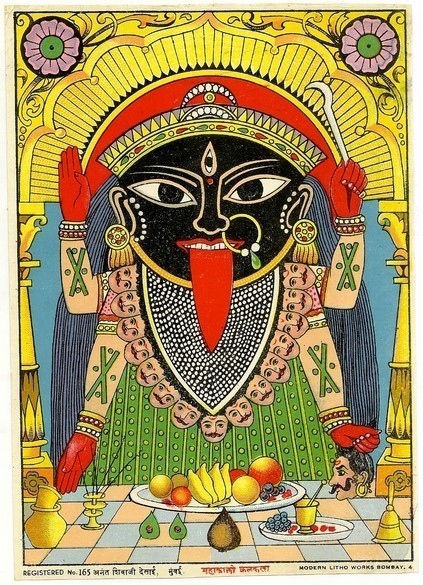
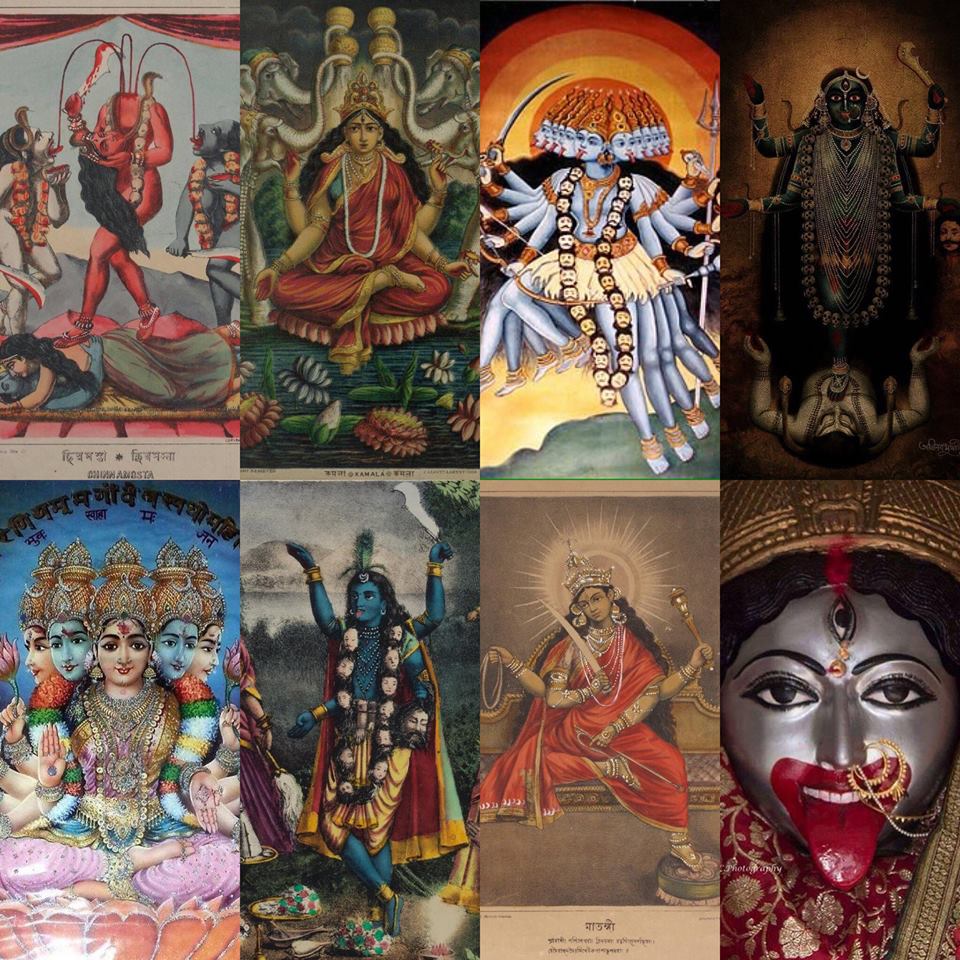
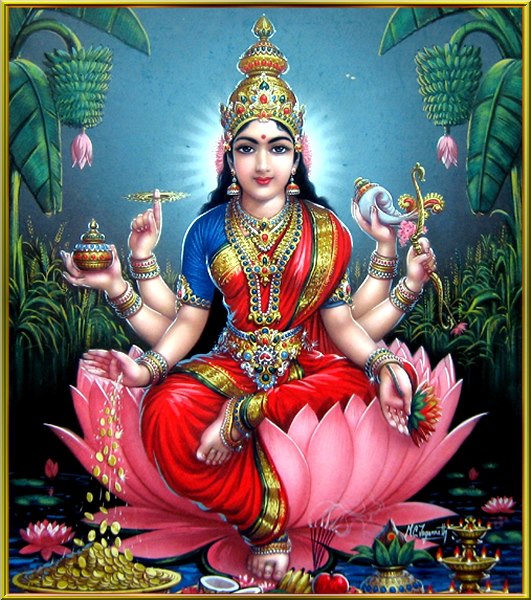
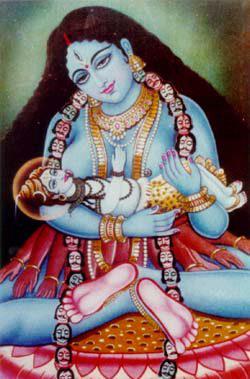
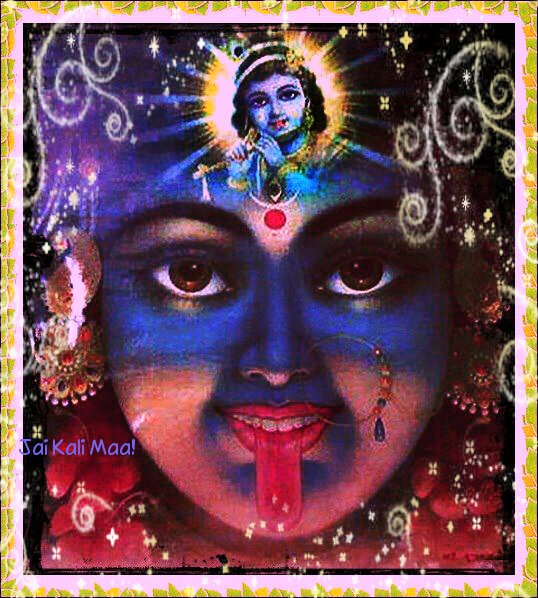
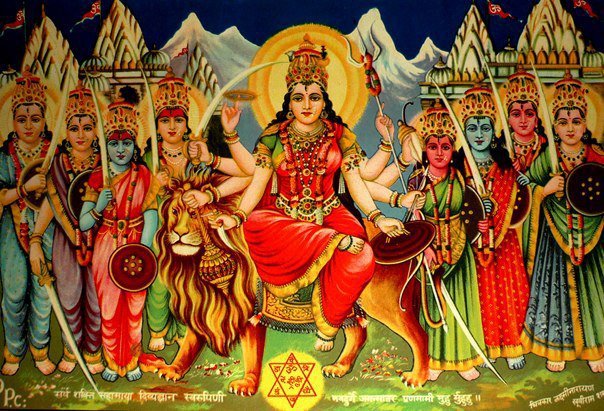
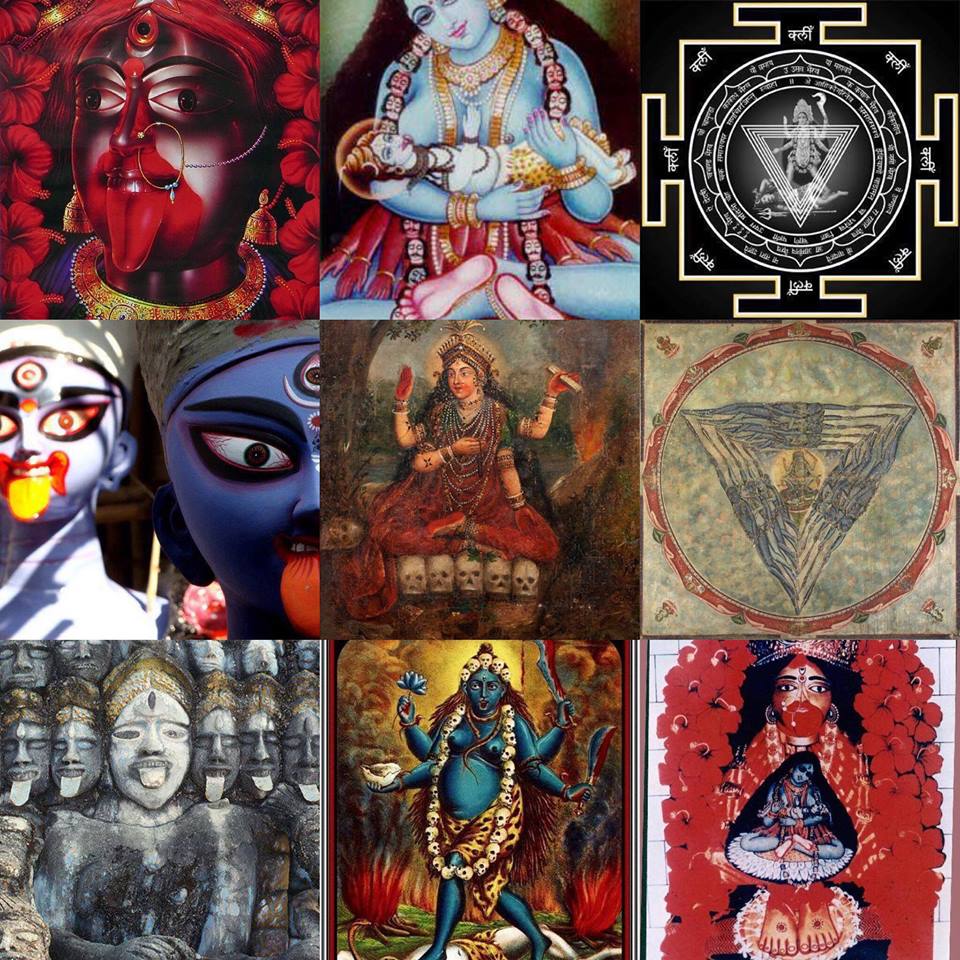
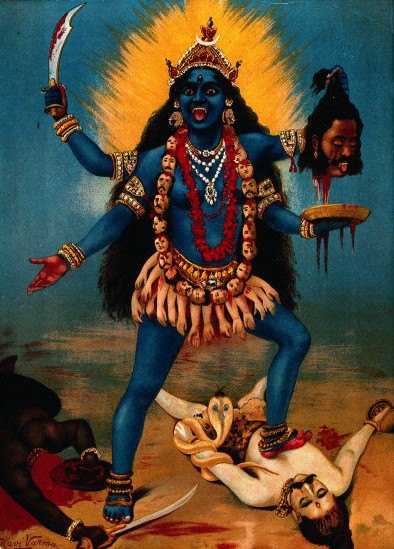
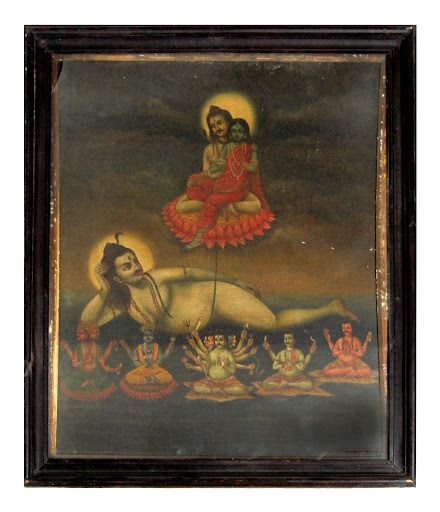
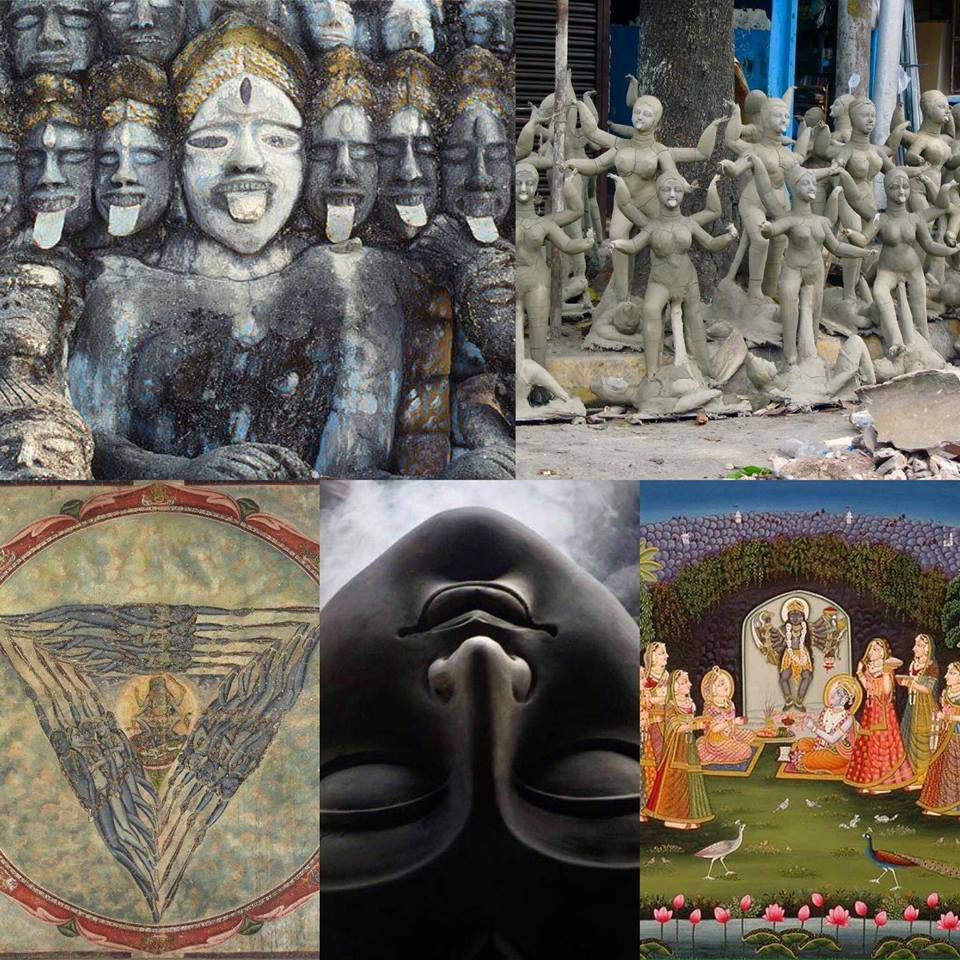
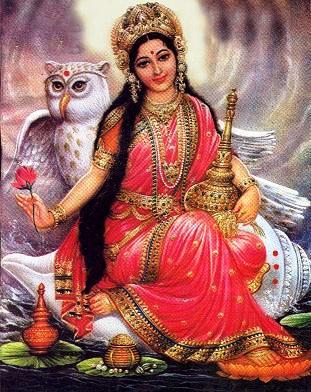
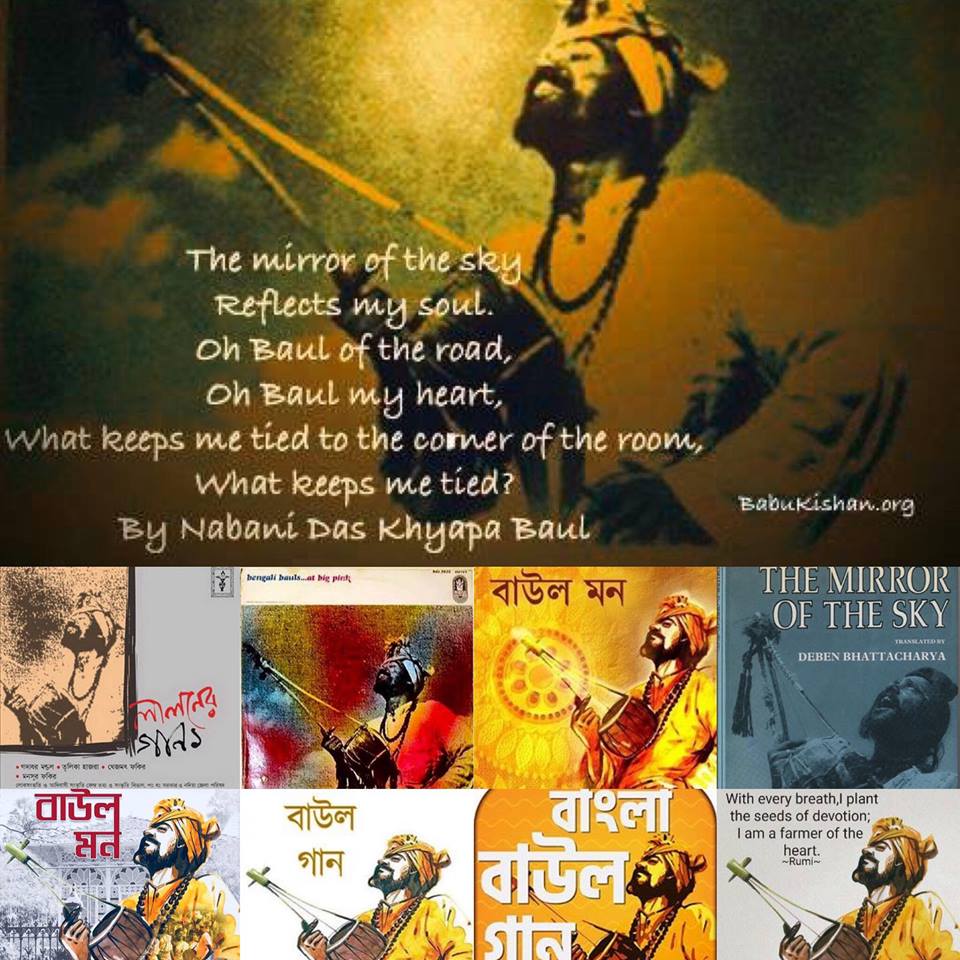
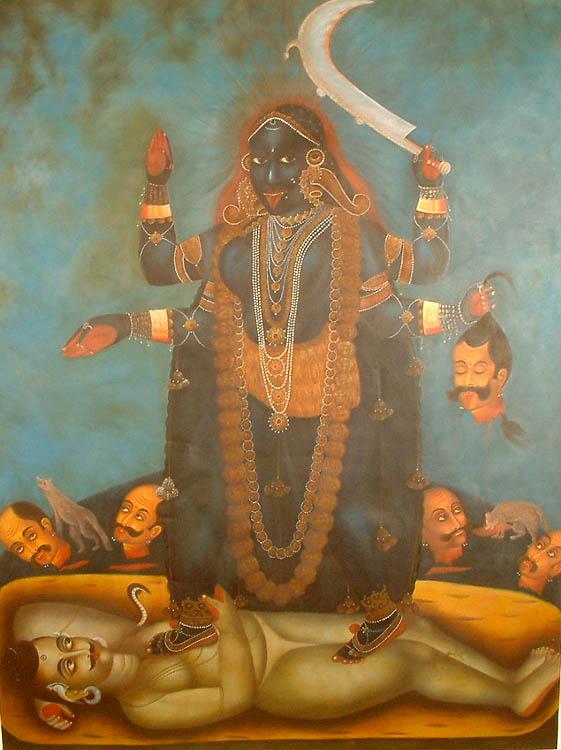
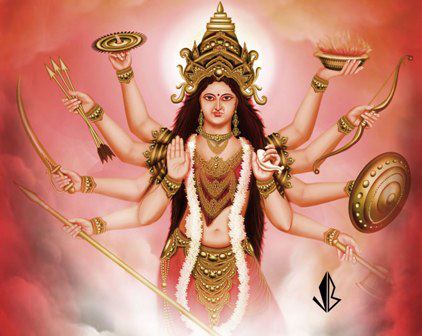
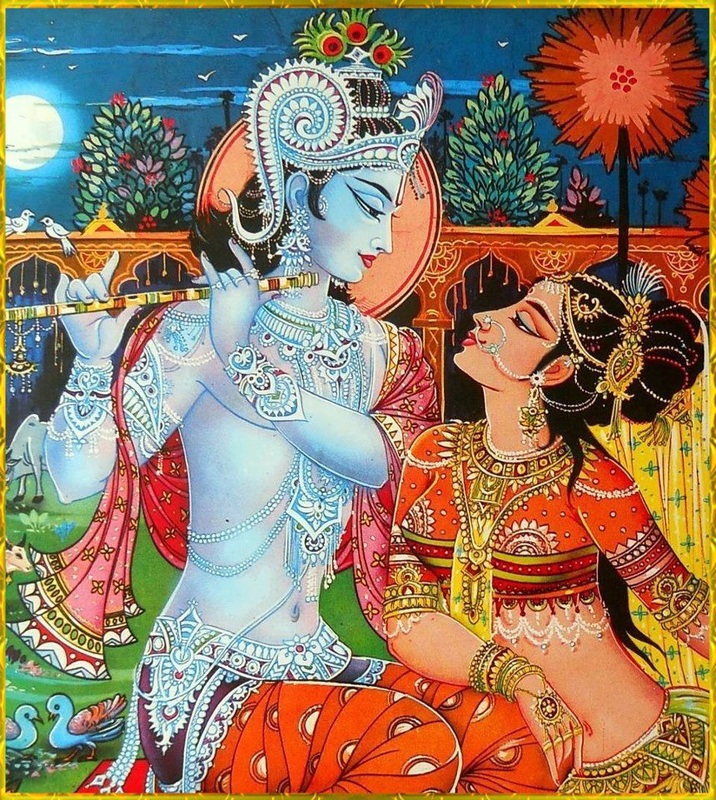
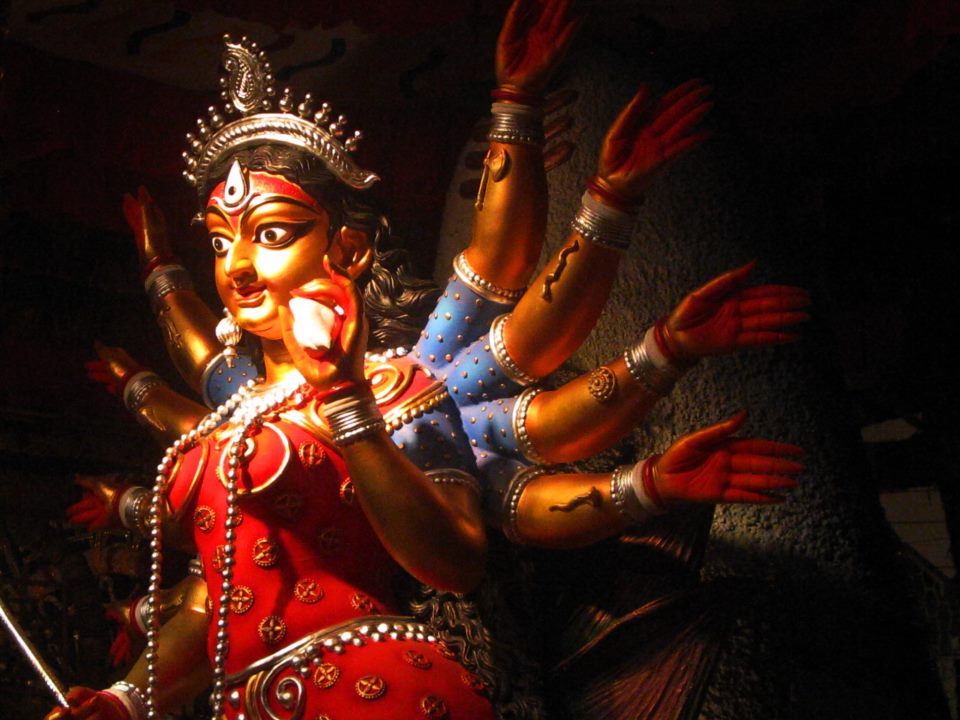
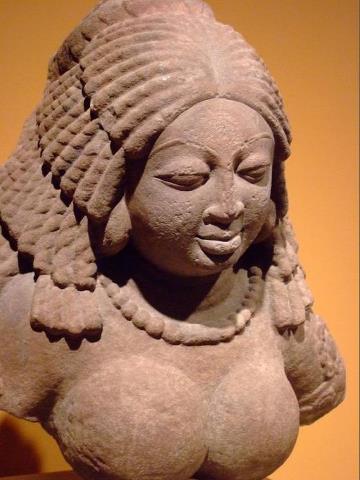
 RSS Feed
RSS Feed
